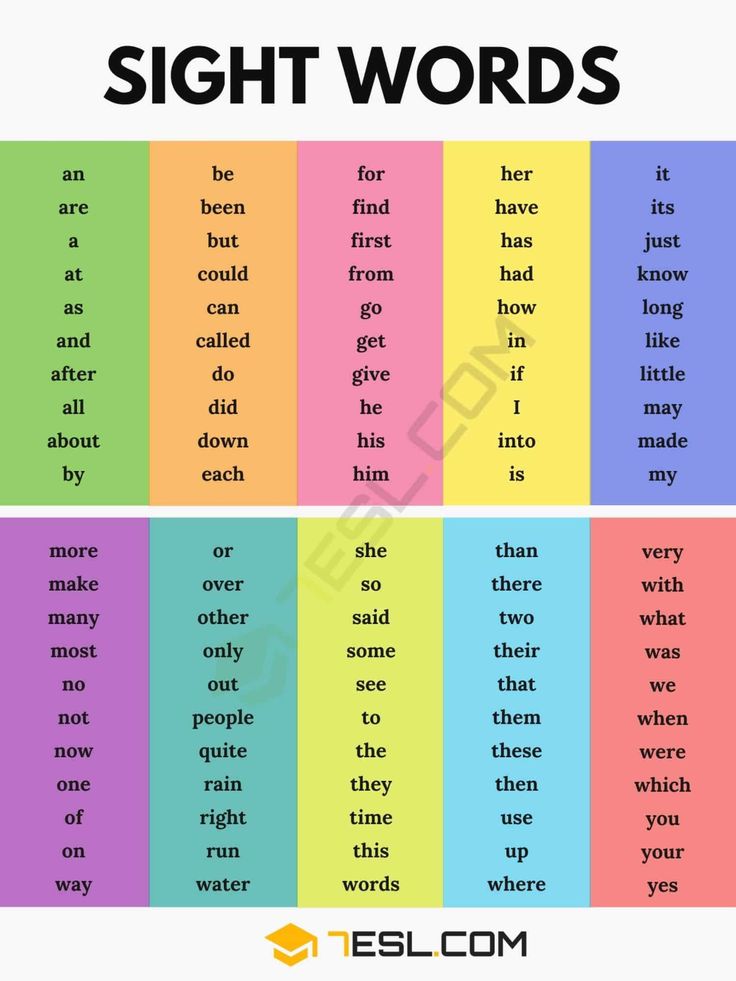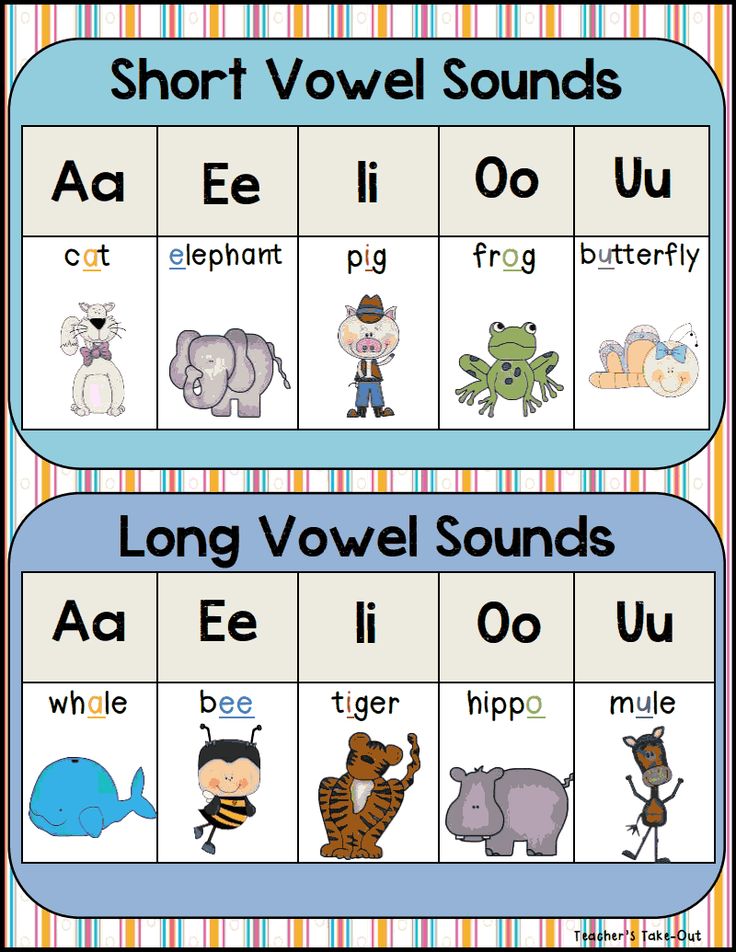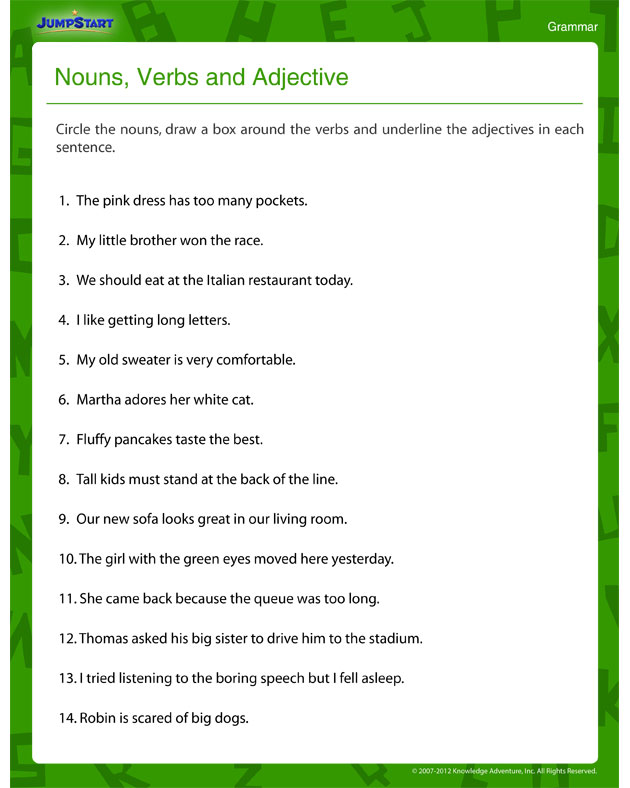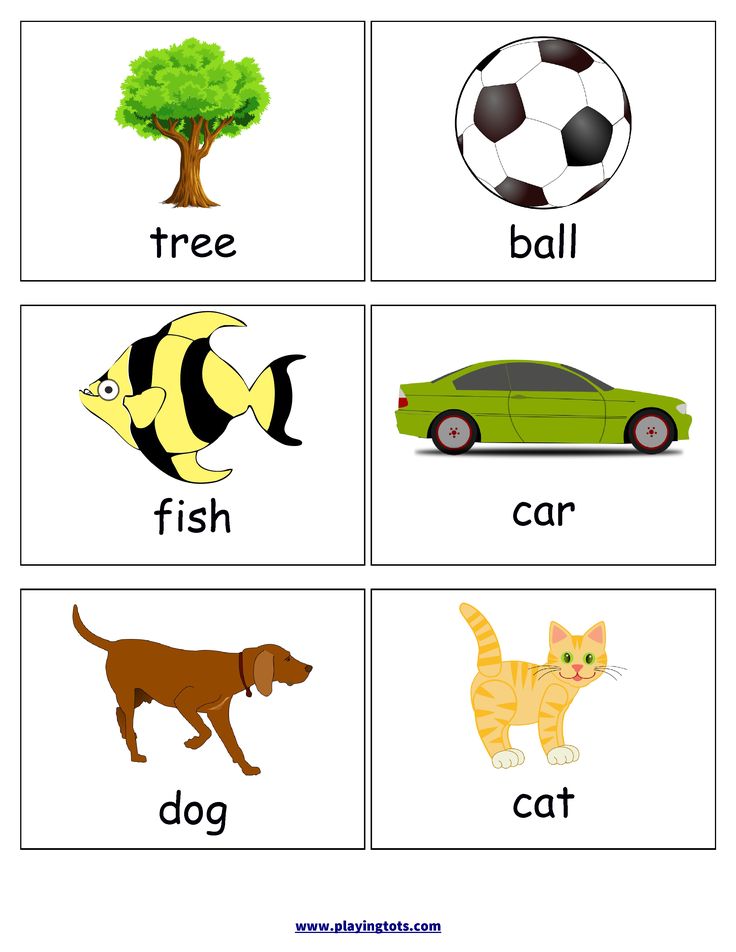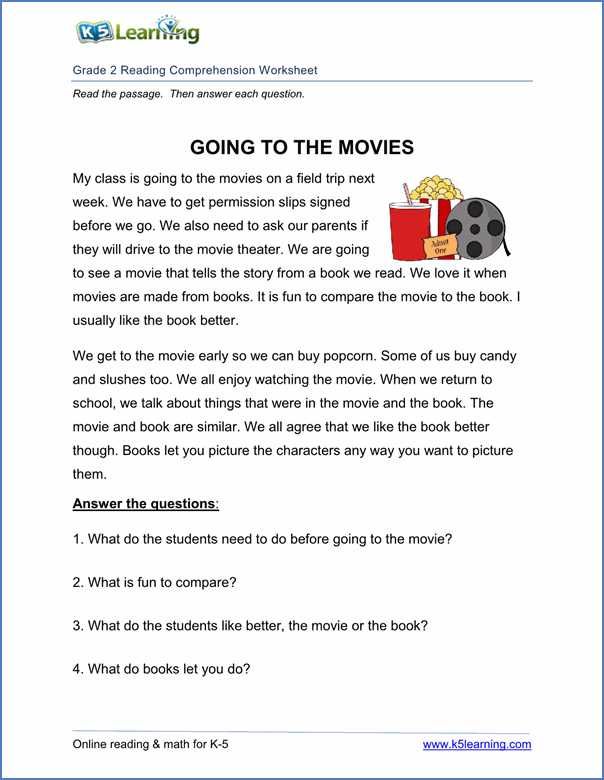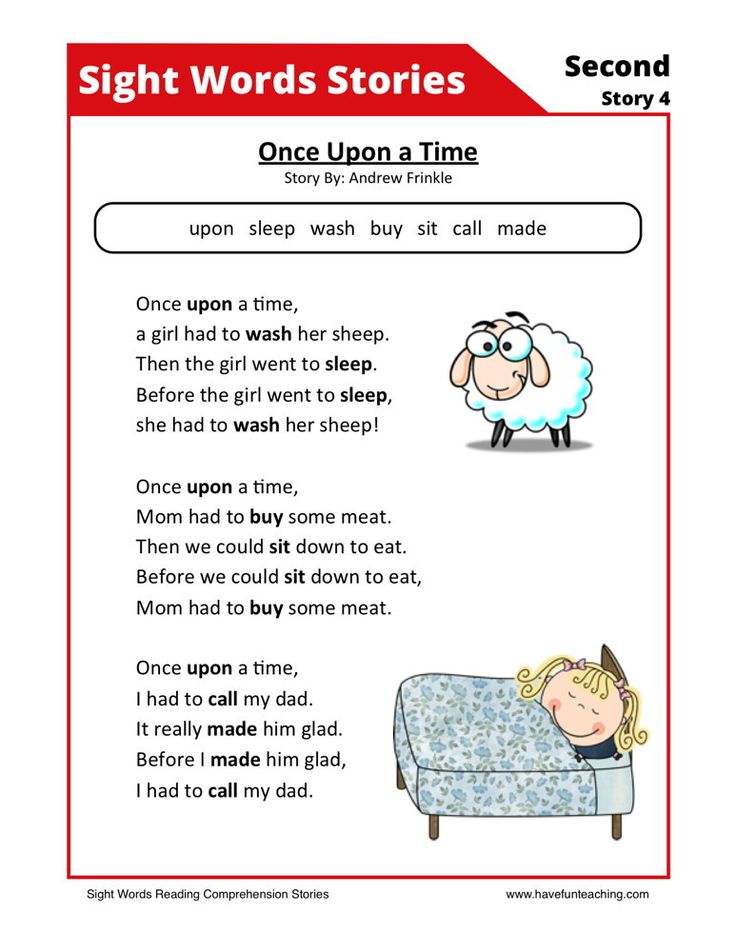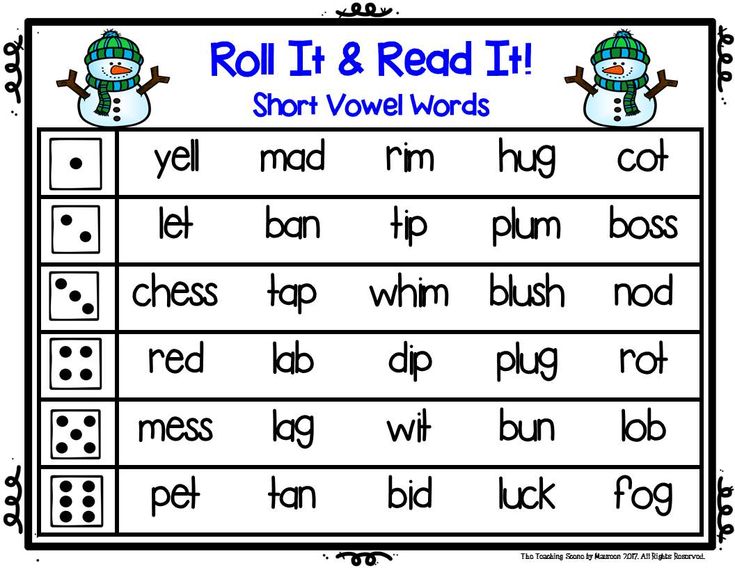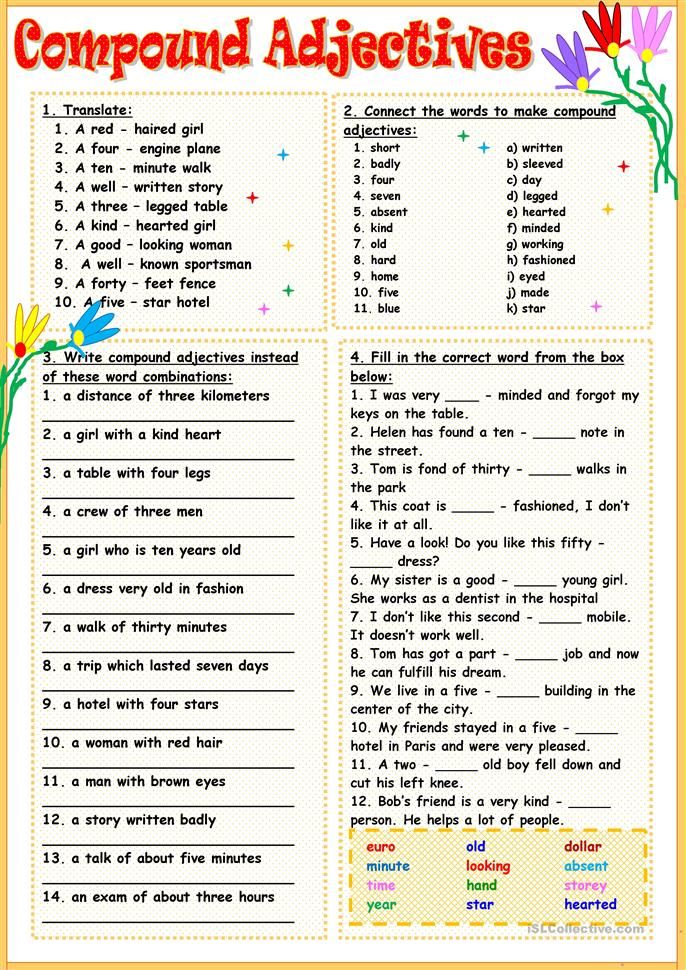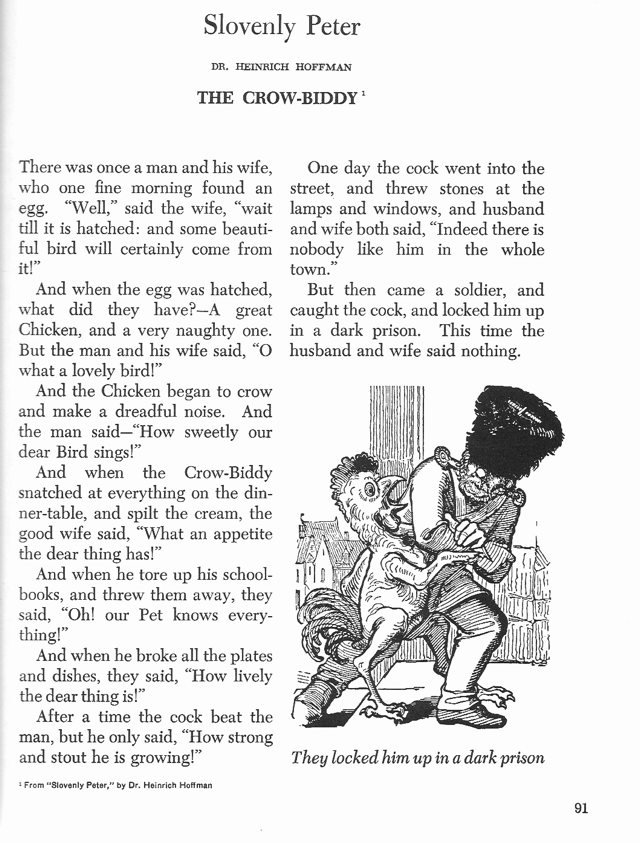Most common sight words
Top 100 Sight Words and How to Teach Them
Sight words is a common term in reading that has a variety of meanings. When it is applied to early reading instruction, it typically refers to the set of about 100 words that keeps reappearing on almost any page of text. “Who, the, he, were, does, their, me, be” are a few examples.
In addition to their being very frequent, many of these words cannot be “sounded out.” Children are expected to learn them by sight (that is, by looking at them and recognizing them, without any attempt to sound them out.)
Unfortunately, this means minimal teaching. Often, little is done other than to show the word and tell the child what it is “saying.” For many children, this is not enough, with the result that their reading of these critical words is laden with error.
What does this mean for parents who are helping their children master reading? Basically it means spending some time in truly teaching these words so that your child gains real mastery of them. The key to achieving this goal is accurate writing (spelling)—via memory. That is, the child writes the word when the model is not in view.
You can do this by creating simple sentences that the child reads. (By using sentences, you will automatically be using many “sight words.” In addition, you will be giving your child the opportunity to deal with words in context—a key to meaningful reading) After showing the sentence and having your child read it, turn it over and then dictate the sentence. If there is an error, you immediately stop your child and take away the paper. Then you show the model again and repeat the process. In other words, the writing of the sentence has to be fully accurate, starting with the first word.
If you want a list of those words to help guide your efforts, here is the top 100 according to the American Heritage Word Frequency Book by John B. Carroll.
A: a, an, at, are, as, at, and, all, about, after
B: be, by, but, been
C: can, could, called
D: did, down, do
E: each
F: from, first, find, for
H: he, his, had, how, has, her, have, him
I: in, I, if, into, is, it, its
J: just
K: know
L: like, long, little
M: my, made, may, make, more, many, most,
N: not, no, now
O: or, one, of, out, other, over, only, on
P: people
S: said, she, some, so, see
T: the, to, they, this, there, them, then, these, two, time, than, that, their
U: up, use
V: very
W: was, with, what, were, when, we, which, will, would, words, where, water, who, way
Y: you, your
Click here to download our Recommended Top 100 Sight Words.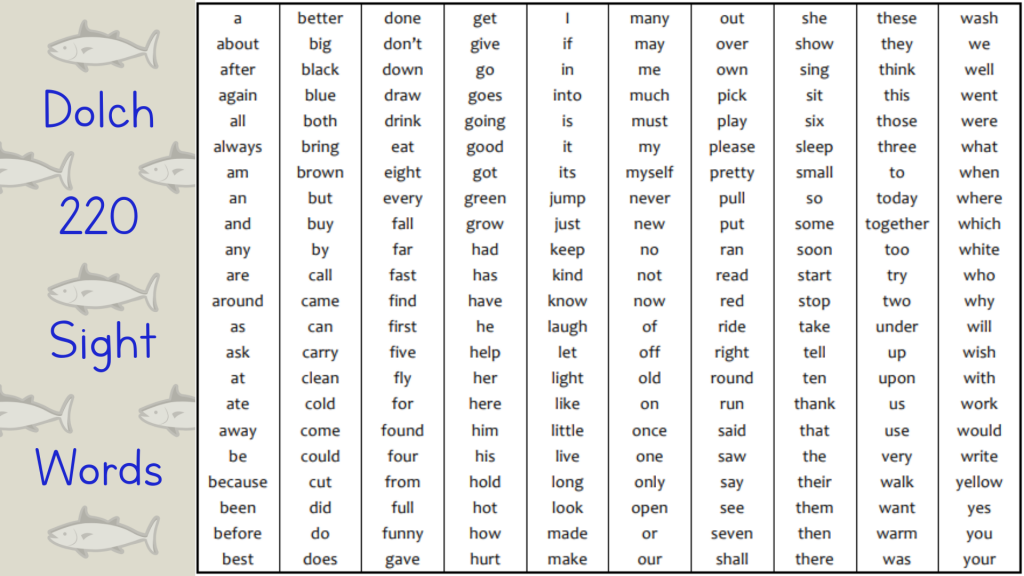
Literacy and reading expert, Dr. Marion Blank
Dr. Marion Blank is answering your questions about reading and learning. If you have a question for Dr. Marion, visit the Reading Kingdom Facebook Page and let us know how we can help.
If you think the Reading Kingdom program can help your children learn to read, enjoy a free, 30-day trial here.
Top 25 Sight Words Young Readers Need to Know!
Join our FREE Kids Book of the Month Club!
You'll get free monthly books PLUS a 2 week trial of our fun reading program!
Password
Confirm Password
What are Sight Words?
Sight words, or high frequency words, are the most common words in the English language. They are very common words which can’t be sounded out according to the normal rules, so they need to be learned by sight.
Children are encouraged to learn sight words by memory to make reading quicker and easier.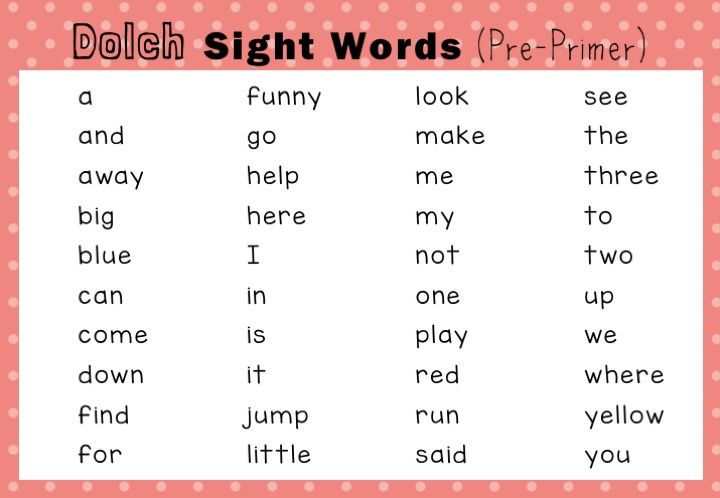 Amazingly, sight words can make up to 50-70% of the words used in general text!
Amazingly, sight words can make up to 50-70% of the words used in general text!
Why does your child need to know Sight Words for Kindergarten?
Having a lot of sight words memorised can help children gain confidence with reading and spend less time on decoding (figuring out the letter sounds).
If a child can read almost a whole book just based on kindergarten sight words, they’ll be able to spend more time learning the words they don’t know yet! Learning sight words is the easiest and most efficient way to start learning to read. Try out these kindergarten words with your early-learner today!
Watch the Sight Words Video!
Our Top 25 Sight Word List for Kindergartners
Our kindergarten sight word list introduces the Top 25 sight words for kindergartners, which you can also see in our fun video above!
Later, we’ll add a high frequency words list for Grade 1 and Grade 2.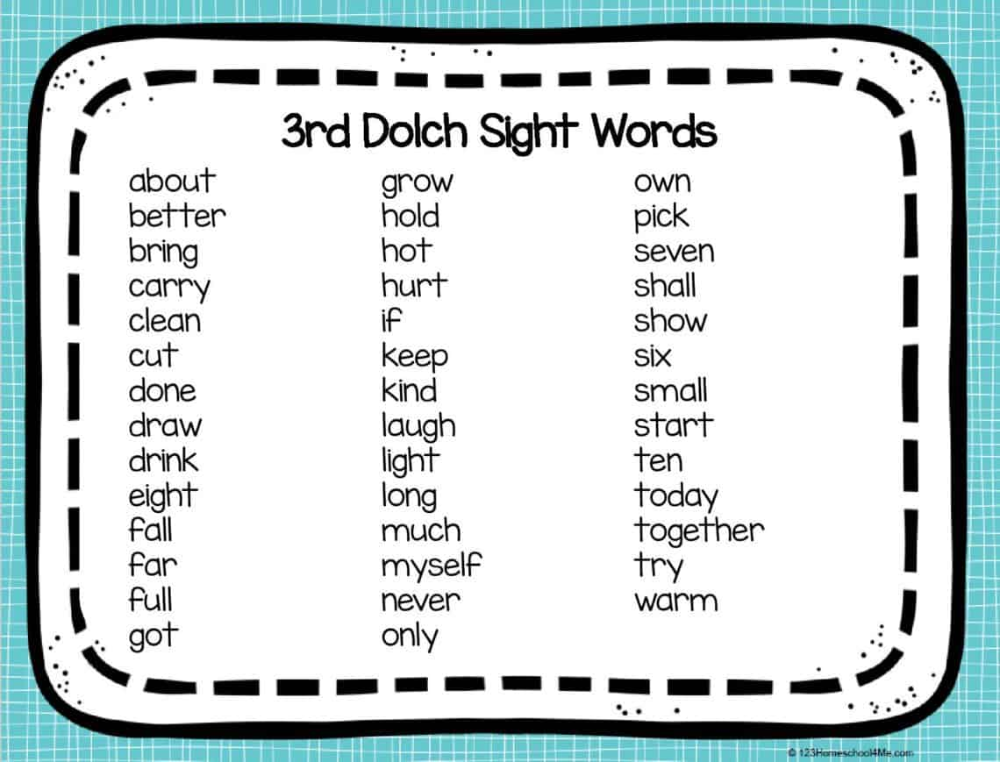
the
of
and
a
to
in
is
you
that
it
for
was
on
are
not
but
what
all
we
there
can
an
your
their
do
Sight Words Flashcards
Looking for kindergarten sight words flashcards? You’ve come to the right place! Our free printable flashcards are very popular with kids, parents and teachers.
Teachers:
- Print in full color
- Cut out each card
- Give one card to each student to colour in the outlined images
- Practice! Kids will love learning even more when they see you’re using the flashcards that they’ve colored 🙂
Parents:
- Print flashcards on your laser printer at home
- Cut out each card
- Give the cards to your child to color in over a few days.
- Practice these sight words at least 2-3 times per week!
- For extended practice, try to make some sight words sentences together.
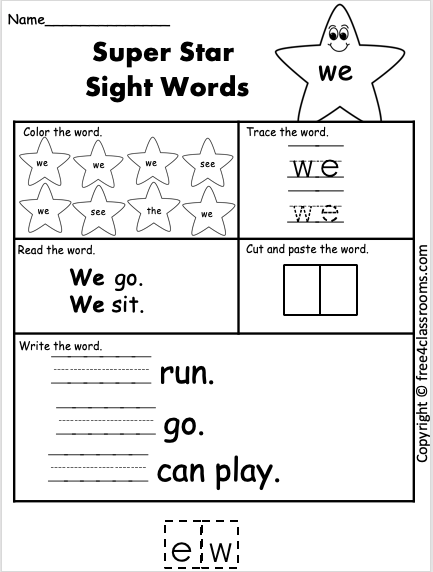
Download Worksheet
Sight Word Games
Kindergarten sight word games
- Sight Words Bingo:
- Create a sheet of sight words 25×25 squares
- Give kids pens or small markers
- Read aloud the sight words one at a time
- Kids should cross out the word when they hear it
- To win, kids need to make a horizontal, vertical or diagonal line of 5 words and read aloud the 5 words for more practice!
- Sight Words word search:
- Create a word search using an online generator
- Add 20+ sight words into the generator
- Children need to find each sight word (vertical, horizontal or diagonal) and circle them
- Repeat until all the words have been found
- For more practice, help children to make short sentences using the words
- Sight Words Beanbag Toss:
- Create 30+ separate sight words on some cards (use our flashcards above or write your own)
- Spread them out on the ground
- The child should toss the beanbag onto one of the words and then read the word aloud!
- Sight Words Memory:
- Write 10 word pairs onto 20 pieces of card or paper
- Shuffle the cards and place them face down on a table
- The child should turn over one of the cards, read it out loud and keep it face up
- Then the child should pick up a second card and read it out loud.
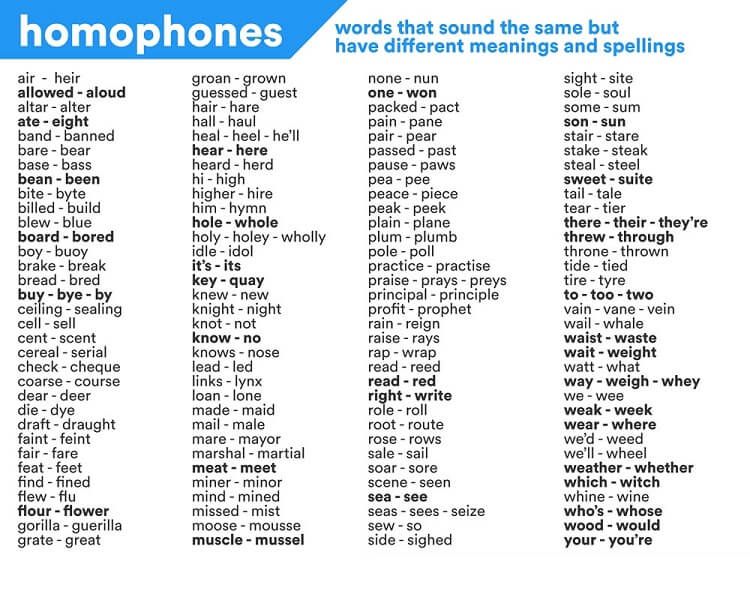 Do they match?
Do they match? - If they match, keep the cards face up. If they don’t match, turn the cards over again. Repeat from step 1
- Keep repeating the steps until all 10 pairs have been matched!
How should children learn Sight Words?
Sight words need to be memorised when children are young (3-6 years) to give them the best head start with reading. Early-learners should learn sight words before they actually learn to read so they’ll save time and have more confidence with reading.
Start with our sight words list and kindergarten sight words printables above, then go on to learn more sight words with the resources here.
Here are some sight word activities for kindergarten! Try these at home or in the classroom:
- Use our sight words video to help your kids sound out these common words. They can listen and repeat each word as a class or one-by-one.
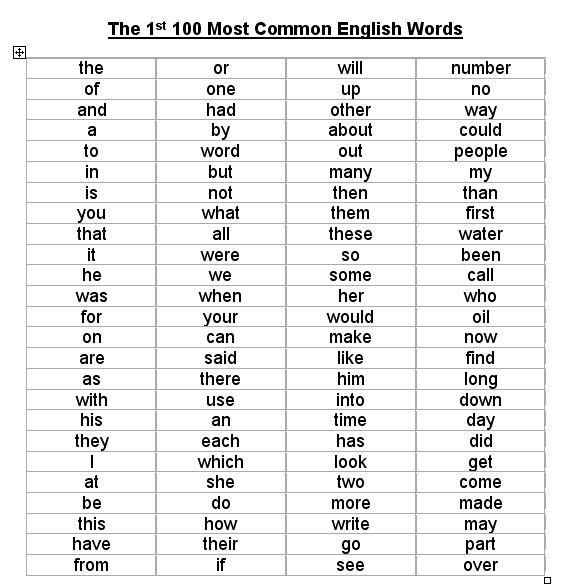
- Use printed flashcards to help with sight words drills in class or at home. You can help kids to make their own sight word sentences!
- Read with your child and point out or underline all the sight words in the book. Read the book again and see if your child recognises the words more easily this time.
- Use the flashcards to mix and match the words, and help children create full sentences
- Online games: find games which use a mix of audio, imagery and action to keep children motivated and curious to learn more.
- Images and gestures: for some children, the best way to learn sight words is to match them with pictures and gestures. This can be difficult for some of the more abstract words, but you can be creative with this.
Sight Words Workbook
Do you love teaching kids using free sight word worksheets? Then download our collection of worksheets in our Sight Words Workbook.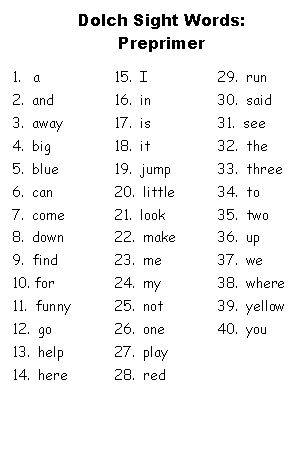 You’ll find all the kindergarten high-frequency words that we use in our sight words video above!
You’ll find all the kindergarten high-frequency words that we use in our sight words video above!
Kids can practice writing the letters of the alphabet and go onto tracing and writing sentences. When they’re done they can even color in the images!
Parents: use these as some fun writing and sight word practice after school.
Teachers: assign these as homework or use as an in-class activity that can be expanded on.
Download Worksheet
Red Cat Reading Makes Learning Sight Words Fun & Exciting for Your Child!
I started Red Cat Reading to help overworked and overstressed parents prepare their children for school success.
For children just starting to learn how to read, our Phonics Program is just what they need. Our phonics books introduce sight words and dolch words (common words) gradually, page-by-page, book-by-book.
Your child can easily follow the gradual introductions of sight words and understand the context with bright illustrations, read-aloud text and catchy songs.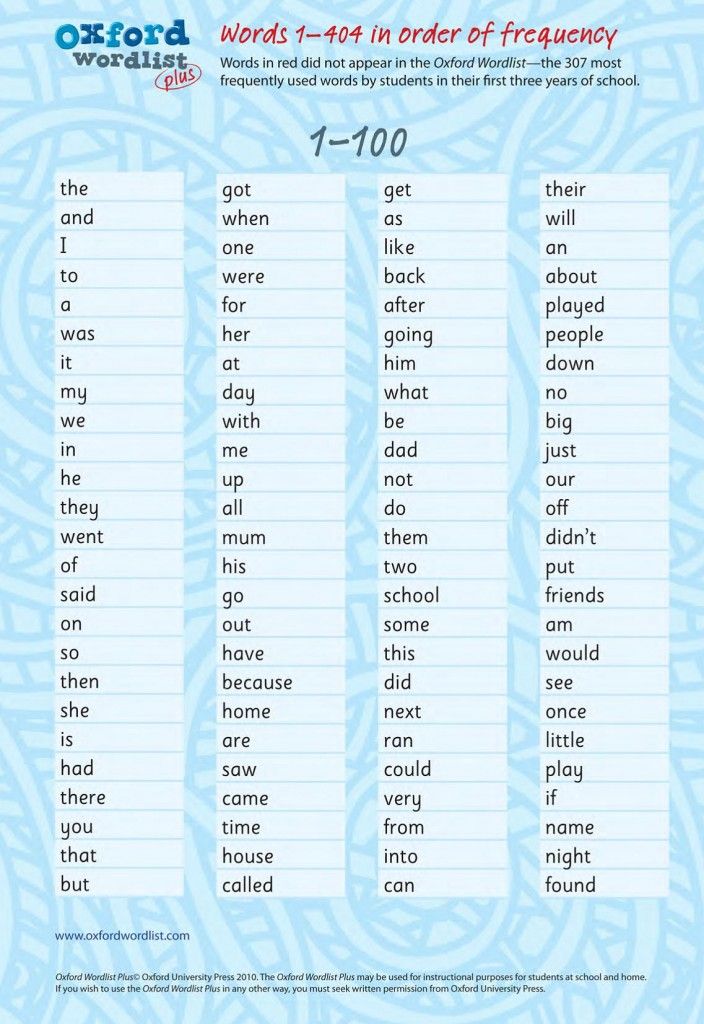
For example, all our Level 1 books only use the simplest sight words (the, and, a, in, it) so kids can get comfortable with these words before moving on to the next level.
Your child will have FUN learning sight words with our interactive phonics books, videos and songs! Each book comes with read-aloud audio and a video, so your child can reinforce their knowledge.
Access on any device, anytime! You can even download all our books and videos to read and watch offline.
Sample Our Interactive Phonics Book
Now that your kids have a lot of sight word practice under their belt, you can move on to phonics! Unlike sight words, phonics is the system of breaking down words into separate sounds to make them easier to sound out.
This can be daunting to start with, but we make it easy and fun for kids with our friendly characters, read aloud phonics books, read along phonics videos and creative worksheets!
Sample one of our Level 1 phonics books below:
The Four Steps to Learning Sight Words and Phonics
Your child will learn to read FAST with our 4-step method.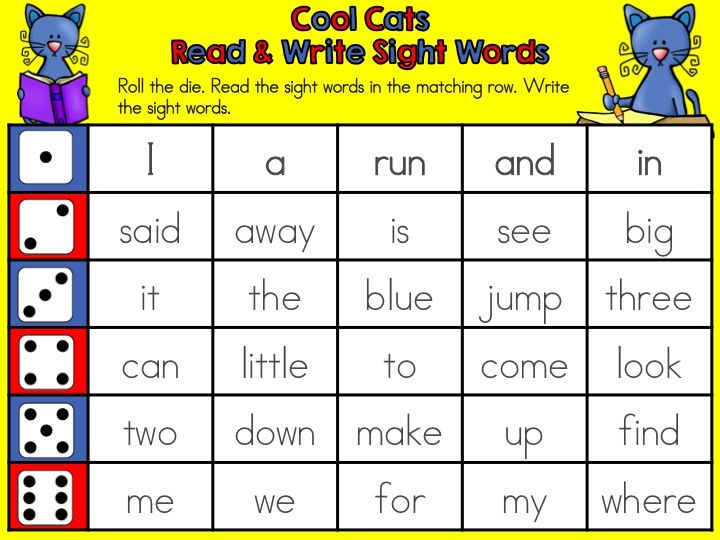 You already know that phonics is a proven method that brings letters and sounds together.
You already know that phonics is a proven method that brings letters and sounds together.
While learning phonics your child will also learn ALL the sight words they need, in 4 simple steps.
- Watch
Watch phonics videos to hear the sounds and see the letters! - Read
Read the Free eBook to review the words and sounds! - Practice
Speak out loud with the fast and easy practice pages! - Sing-along
Sing-along with catchy songs and master all the phonic sounds!
Recommended Free Books
Download our most popular books, FREE!
Kids will memorize sight words and learn the sounds of the English alphabet with our funny, read-aloud stories.
44 words that we use incorrectly
1. Autobiography
“Fill out the questionnaire and write your autobiography” — we often hear such phrases and do not think that this is an error from the “butter oil” category.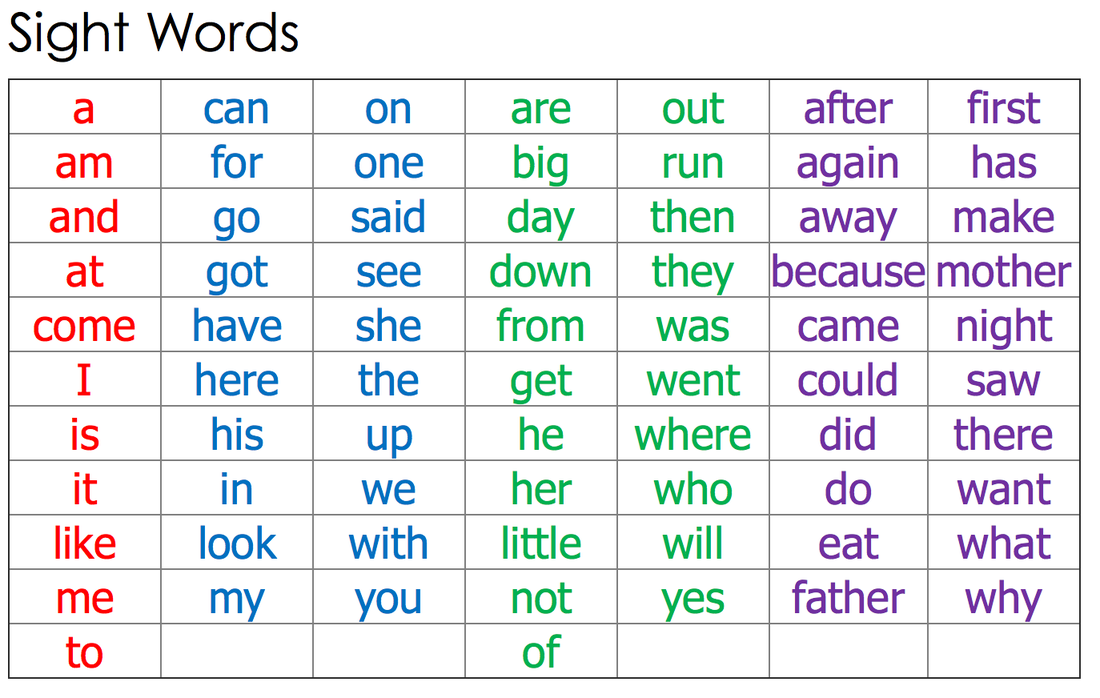 An autobiography is a description of one's life (autos - "myself", bios - "life" and grapho - "I write"). It is impossible to write someone else's autobiography, so the use of a possessive pronoun in this case is unnecessary.
An autobiography is a description of one's life (autos - "myself", bios - "life" and grapho - "I write"). It is impossible to write someone else's autobiography, so the use of a possessive pronoun in this case is unnecessary.
2. Ambitious
Think before you write ambitious in the column of your merits in your resume. Ambitious and purposeful person are different concepts. Ambition is heightened self-esteem, excessive self-conceit, as well as various claims and claims. The adjective derived from this word also has a negative emotional connotation.
3. Appeal - operate
These words are often confused. In fact, they are completely different. To appeal means to turn to someone or something for support: "Appeal to authority." This word is interpreted even more narrowly in legal practice: an appeal is a complaint, to appeal is to protest something. You can operate with some tools or data. “The expert operates with statistics” means that he skillfully demonstrates it.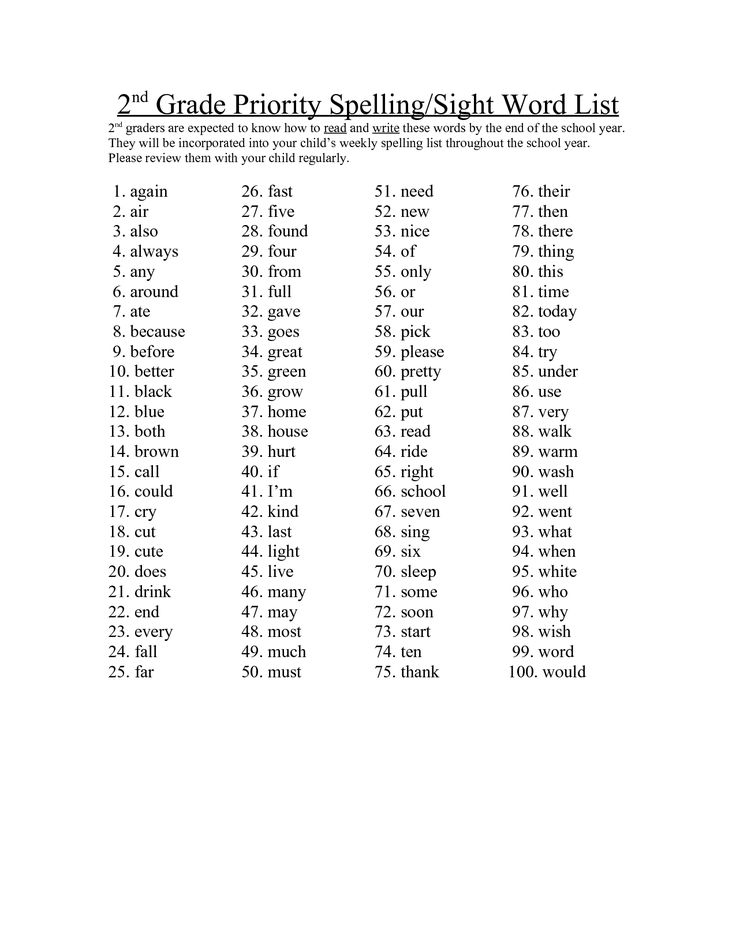 If he calls for statistical research to help, then he is already appealing to statistics.
If he calls for statistical research to help, then he is already appealing to statistics.
4. A priori
This adverb is understood by many as something self-evident, requiring no proof. But in philosophy, to think a priori means to have an idea about something without having tested it in practice (from the Latin a priori - “from the previous”). The antonym is the word "a posteriori" - a judgment based on experience. So you can't be a priori sure of the meaning of a word until you look it up in a dictionary.
5. Test - try
These words are sometimes used as synonyms. To avoid such a mistake, remember: to test means to check and approve. As a rule, we are talking about some kind of official procedures: "Scientists have tested a new medicine - it will soon go on sale." You can’t test semolina, unless, of course, this is some kind of large study, the results of which will be issued a written opinion.
Test yourself 🧐
- TEST: Do you really know Russian?
6.
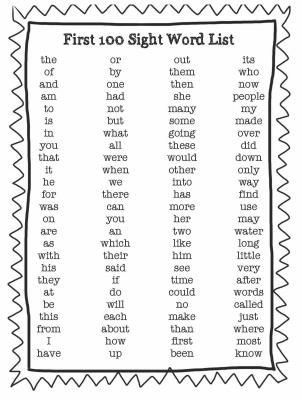 Asexual
Asexual Sometimes this is the wrong name for an unattractive person. The term "asexual" means a weak sexual instinct. An asexual person can be cute as hell, but also indifferent to sex.
7. Authentic
Buzzword. Every now and then something becomes authentic - cafes, performances and even people. But the word "authenticity" ≠ "originality". It means authenticity, correspondence to the original. Authentic can be a contract or a product, as well as works of art.
8. Hypothesis - theory
Similar but not identical concepts. A hypothesis is a scientific assumption put forward to justify a phenomenon and requiring experimental verification. Theory (in one of the meanings) is an opinion about something, developed on the basis of observations. In other words, within the framework of any theory, a hypothesis can be put forward in order to prove certain provisions of this theory.
9. Dilemma is a problem
Solving a dilemma and coping with a problem are not the same thing.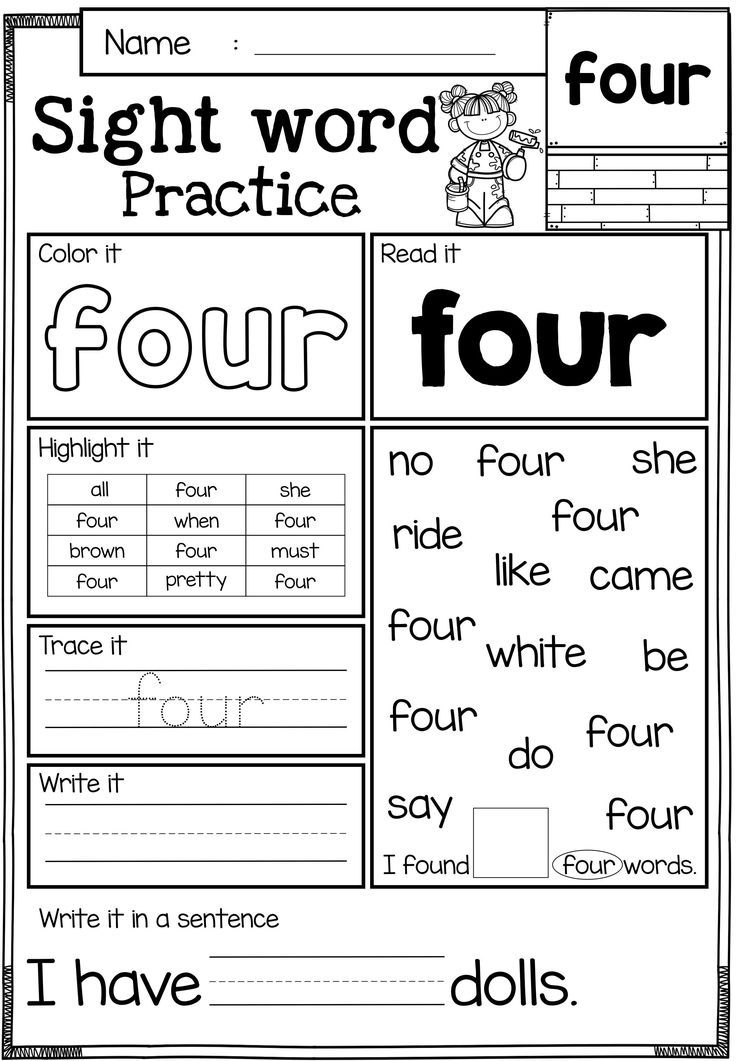 A dilemma is a difficult choice between two mutually exclusive options. To be or not to be? The third, as a rule, is not given. A problem is, first of all, an unpleasant situation with many or no solutions.
A dilemma is a difficult choice between two mutually exclusive options. To be or not to be? The third, as a rule, is not given. A problem is, first of all, an unpleasant situation with many or no solutions.
10. Agreement - contract
Very similar concepts, but there are semantic and legal nuances. A contract is an agreement between two or more persons. According to civil law, it can be concluded both in writing and orally. A contract is always a written agreement. Moreover, according to the current legislation, one of its parties, as a rule, is the state.
11. Significant - significant
There is also a lot of confusion with these adjectives. Significant, that is, having weight or having a special meaning, can be, for example, words. Significant is, first of all, large in size or strength; something of great importance. Therefore, the profit of the company will always be significant.
12. For — so that
These conjunctions are often used incorrectly, because they do not know their meaning.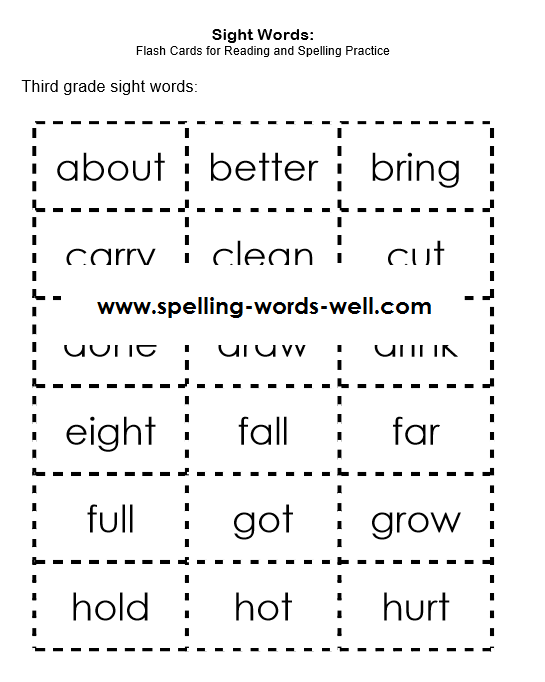 Look in the dictionary so as not to make a mistake when attaching a subordinate clause. The union “for” corresponds to the unions “because” and “since”, and “in order” to the union “so that”.
Look in the dictionary so as not to make a mistake when attaching a subordinate clause. The union “for” corresponds to the unions “because” and “since”, and “in order” to the union “so that”.
13. Ideology - ideological
These concepts cannot be substituted for each other. Ideology is a system of views that forms a worldview. Previously, the world was clearly divided into adherents of a particular political and economic ideology. Ideology is loyalty to any point of view, idea.
14. Quintessence
This word comes from the Latin quinta essentia - "fifth essence". In ancient and medieval philosophy, the quintessence was called the essence, the basis of anything. Now, for some reason, this term is used when combining various concepts, for example: “The author noticed that his book is the quintessence of many genres, connecting many plots.” And this, of course, is not true.
Find out 🤔
- QUIZ: How good are you at spelling double consonants?
15.
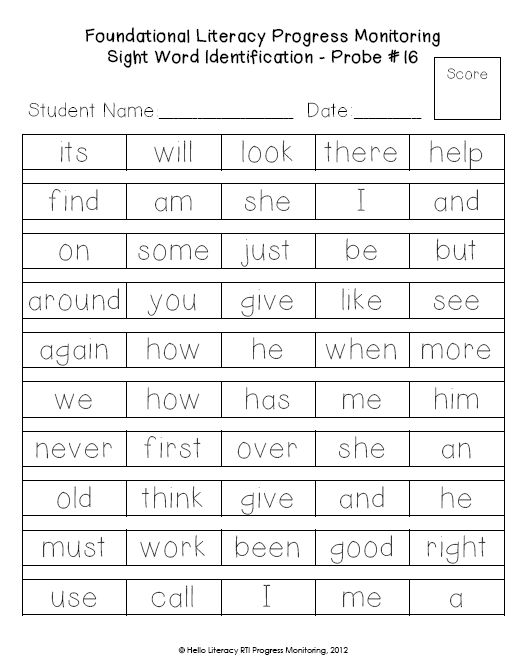 Business traveler - business traveler
Business traveler - business traveler "Places in the hotel only for business travelers" - many will pass by such an announcement without suspecting a dirty trick. But a business trip is something inanimate, related to a business trip. You can't talk about people like that. A person who went somewhere to carry out an official assignment is on a business trip: “For the seconded employees, the company rented a hotel and pays them travel allowances.”
16. Comme il faut
When we hear the phrase “Call him, otherwise I am somehow not comme il faut”, we immediately understand that one person is embarrassed to dial the number of another. This word is often used in the sense of "convenient / uncomfortable" or "comfortable / uncomfortable." Few people know that the dictionary meaning of the word "comme il faut" is refined, refined, corresponding to the rules of good manners. “In public he keeps himself comme il faut, but at home…”
17. Competence is competence
Knowledge and experience in a certain area should not be confused with the ability to use them.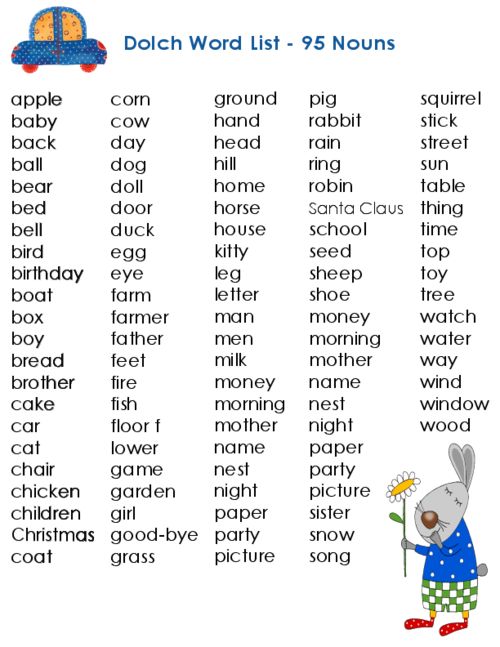 For example, if a company has a vacancy for a lawyer, then only a person with a higher legal education (competence) can fill it. But the presence of a diploma does not guarantee the competence of applicants.
For example, if a company has a vacancy for a lawyer, then only a person with a higher legal education (competence) can fill it. But the presence of a diploma does not guarantee the competence of applicants.
18. Congenial
Many people believe that this is a superlative form of the adjective "genius". Like, congenial - it's like ingenious, only even better. But the word actually comes from the Latin con (together) and genialis (related to genius). At the same time, “genius” in Latin is a spirit. Thus, congenial is close in spirit. A congenial person is one who is close in mindset and values.
19. Credit - loan
These terms can sometimes be used interchangeably (depending on the context). However, it is important to remember the legal differences between these concepts. On credit, a bank or other credit institution issues money, for which interest is charged. The subject of a loan can be not only money, but also things, and not necessarily on a reimbursable basis.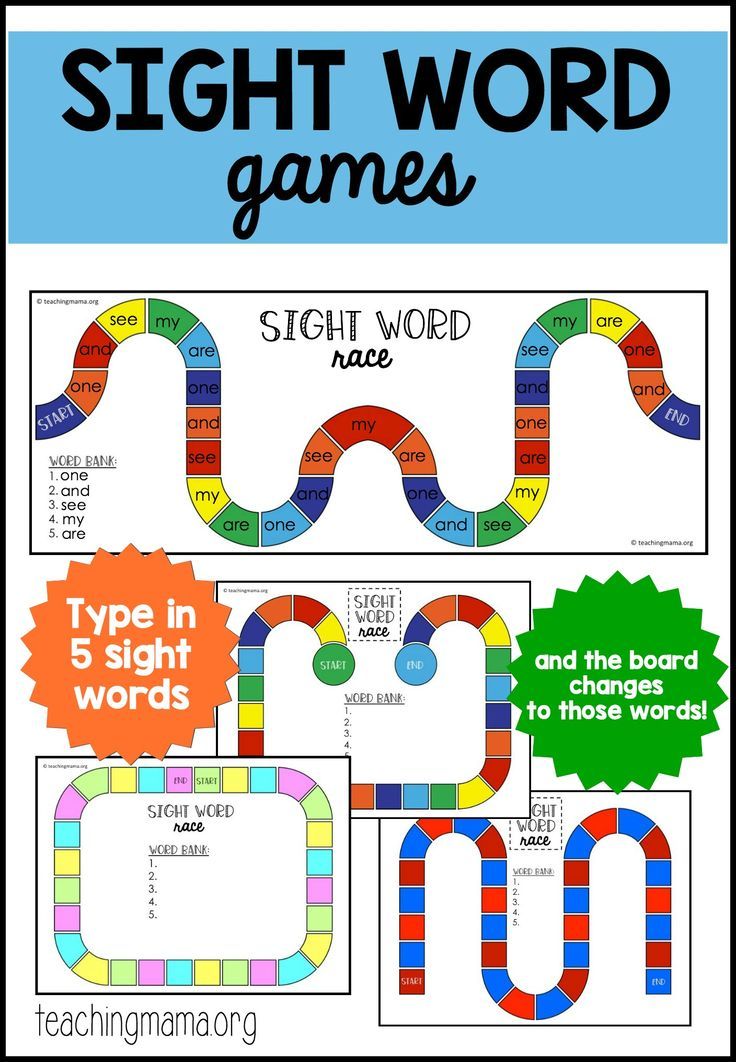
20. Liberalism-libertarianism
Two ideological trends with similar names but different content. Liberalism unites supporters of the parliamentary system, broad political freedoms and entrepreneurship. The main feature of libertarianism is the ban on "aggressive violence". Supporters of this political trend believe that any manifestation of force and even the threat of its manifestation should be punished by law.
21. Loyal
Many people equate this word with indulgence: “If you got a teacher who was loyal, he delivered it automatically.” Let's look at the dictionary: "Loyal - loyal to the existing state power, the existing order." Only in the second meaning - a correct attitude towards someone or something - is loyalty similar to indulgence, but it is still impossible to put an equal sign between these concepts.
22. Marginal
When the press does not want to offend the homeless or beggars, they are “politely” called marginal. But in sociology the term is much broader.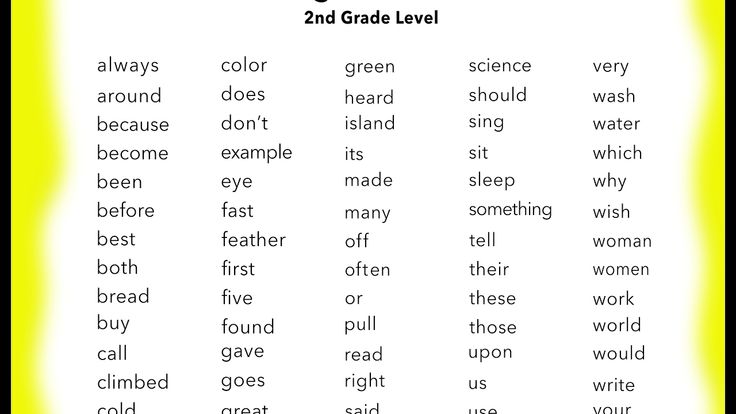 A marginal is someone who finds himself in a new situation and has not yet adapted to it. For example, a marginal position is occupied by a person who has just moved from the village to the city.
A marginal is someone who finds himself in a new situation and has not yet adapted to it. For example, a marginal position is occupied by a person who has just moved from the village to the city.
23. Misalliance - union
Following the logic that "alliance" is the root, some believe that misalliance represents some kind of union of people or states. In fact, misalliance is nothing more than an unequal marriage (the root is “misalliance”). The phrase "Misalliance of Japan and Korea" can sound ambiguous, and sometimes offensive.
24. Misanthrope
Avoids people, does not seek to communicate - this characteristic suits not only misanthropes, but also introverts. Therefore, these concepts are often confused and identified. But a misanthrope (literally, a misanthrope) does not just reduce social contacts to a minimum - people enrage him. He does not trust anyone, he sees only the bad in everything and suspects everyone of something. Misanthropy can be selective and manifest itself in hatred only for men or, conversely, for women.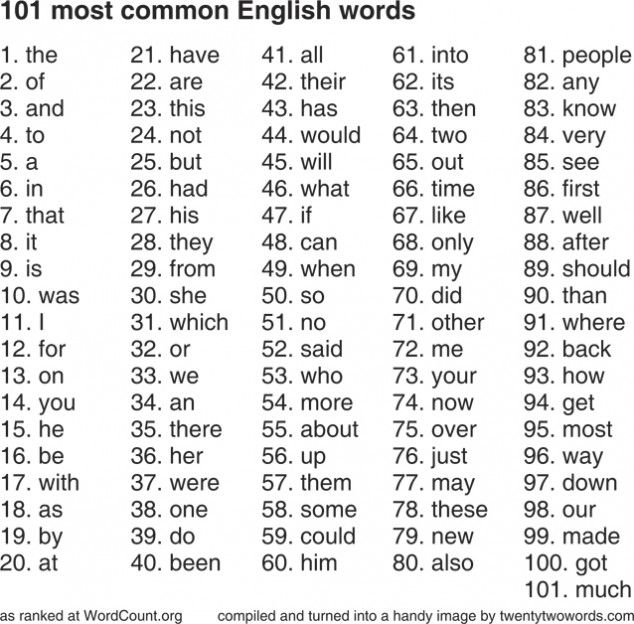 Introverts, for the most part, are complete darlings.
Introverts, for the most part, are complete darlings.
Memorize 😧
- 25 words that baffle many when writing
25. Mental - conceivable
Feel the difference with examples: “Is it conceivable to fail a session!” mother screamed in rage. “La-li-lay…” the daughter sang in her mind. Mental is imaginary, living somewhere in your thoughts. And conceivable is something that is difficult to imagine (but possible).
26. Unpalatable - unpleasant
The first word is often used as a synonym for the second: “What a hard-hitting type!” But to say so is wrong. In fact, impartial - impartial, fair, one who does not seek to please anyone. If someone called you an impartial person, consider that you were given a compliment.
27. Intolerant - intolerable
Words similar in spelling but different in meaning. An intolerant is someone who is not tolerant, or something that cannot be tolerated. For example, an intolerant misanthrope or intolerant rudeness.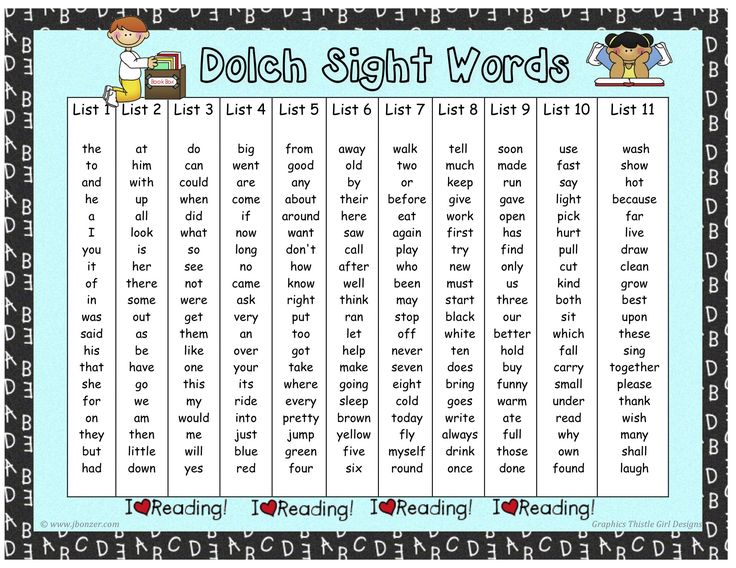 Intolerable is unbearable, acting so strongly that it cannot be tolerated. Unbearable is the pain or the wind.
Intolerable is unbearable, acting so strongly that it cannot be tolerated. Unbearable is the pain or the wind.
28. Nonsense
This word is often given the wrong meaning: “The new iPhone is just nonsense!” They wanted to emphasize the incredible coolness and sensationalism of the gadget, but they said that it was nonsense and absurdity. After all, this is the meaning of the word "nonsense".
29. Odious
Be wary if someone in your environment is called an odious person. It’s good if people just don’t know that odious is not extravagant and extraordinary, but unpleasant, causing a storm of negative emotions. And suddenly not?
30. Organic — organic
Adjectives that are easy to get confused about if you don't understand once and for all that organic is determined by the very essence of someone or something (synonymous with natural). Organic means pertaining to a living organism. Even more narrowly - consisting of carbon. Example: "The monument to doctors struggling with organic brain lesions fits organically into the landscape of the city. "
"
31. Paphos
This word is often understood as pretense. In fact, translated from the Greek páthos means "passion". Paphos is a spiritual uplift, inspiration. In literary works, this term denotes the highest emotional point reached by the characters and found a response in the hearts of readers.
32. Teacher - teacher
These words are often equated, although these concepts are by no means identical. A teacher is a person who is engaged in teaching or educational activities (a synonym is a mentor). A teacher is an employee of a secondary or higher educational institution who teaches a subject (a teacher of mathematics, a teacher of literature). Thus, a teacher is a kind of activity, a profession, and a teacher is a specialization.
33. Gift - souvenir
Using these words as synonyms is not always appropriate. A souvenir is a memorabilia associated with visiting a place. What we buy as a memory of a country, city or person. The expressions "memorable souvenir" or "memorial souvenir" have semantic redundancy.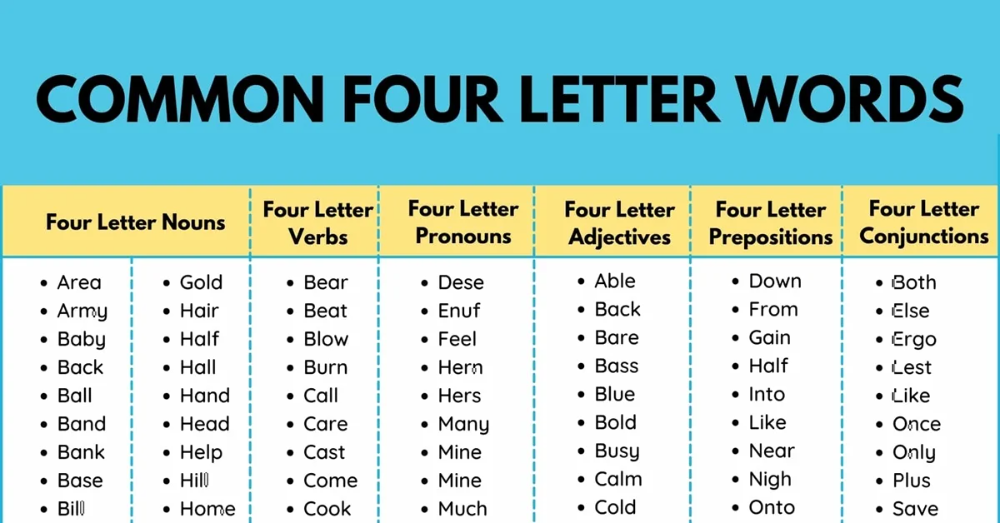 If the present is not related to the trip, it is better to write “gift”.
If the present is not related to the trip, it is better to write “gift”.
34. Under the auspices
According to ancient Greek mythology, the aegis is Zeus' cloak with magical properties. To be under the auspices means to be under the protection of some powerful force, to rely on the support of someone or something. It is wrong to use this expression in the meaning of "under the pretext". It cannot be said: "Under the auspices of consumer protection, Rospotrebnadzor conducted a raid on the city's retail outlets."
Don't do that! 😤
- 30 mistakes in written and oral speech, for which one should be ashamed
35. Change - change
Words that should not be mixed in written literary speech. To change means to give what is yours and receive something else instead, that is, to exchange something. To change means to make something different. The expression "He completely changed his life" is wrong, as is "She changed her maiden name to her husband's name.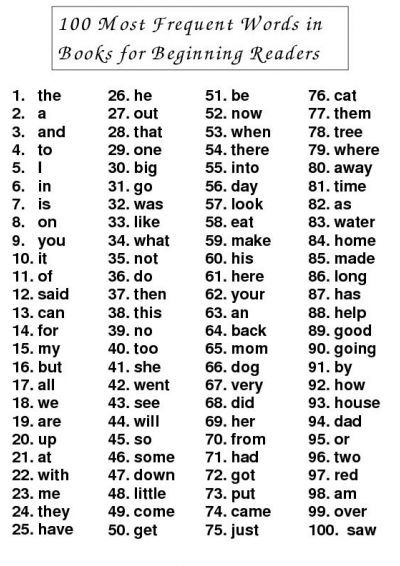 "
"
36. Almost - almost
These adverbs are often confused. You can write “Almost everything remains the same” and “Almost everything remains the same”, but the meaning will be different. The adverb "practically" can be replaced by the expression "in practice" or "as a matter of fact". Then our example will sound like this: “In practice, everything remains the same” or “In fact, everything remains the same.” In other words, things are still there. The adverb "almost" means that something is missing, it can be replaced by the expression "almost". The sentence “Without a little, everything remains the same” has a different semantic connotation: something has been done, but not much.
37. Painting - signature
Related words, but do not identify them. A signature is an inscription under something (under + write). For example, write a surname under the text of the contract. Painting is decorative painting on walls, ceilings or objects. From a literary point of view, the request to put a signature in the act is incorrect.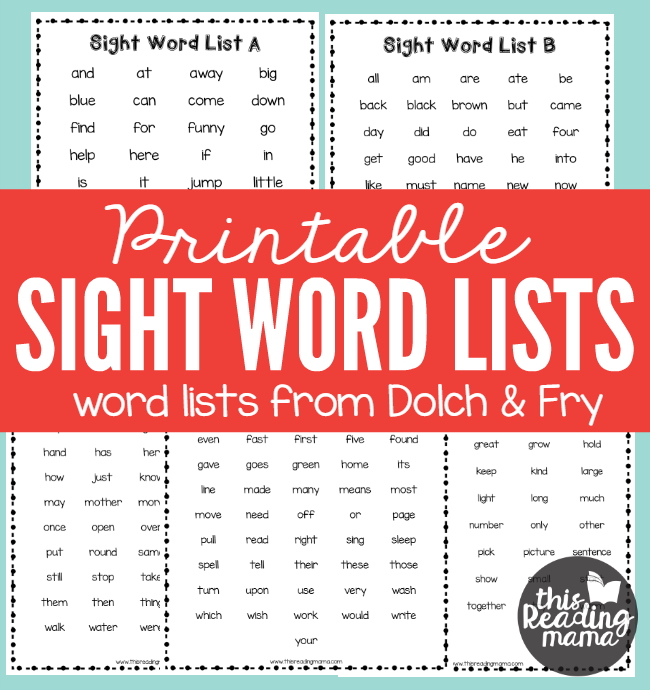 You can replace a signature with a painting only in colloquial speech.
You can replace a signature with a painting only in colloquial speech.
38. Today's - current
"Today", that is, referring to the current day, should not be confused with the word "current". The last concept is broader. It covers everything related to the coming year (month, summer, season).
39. Sentence
Sentences are usually understood as some statements, remarks or theses. But it is important to remember that, according to the dictionary, these should not be any statements, but sayings of a moralizing nature.
40. A sociopath is a sociophobe
The first suffers from a dissocial personality disorder, and therefore does not take into account social norms and rules, does not care about morality and constantly challenges others. The second is a person who is afraid of society. He may be afraid to talk to a stranger on the street or be in a crowded place. Sociopathy is a type of mental disorder, social phobia is a type of phobia. It is impossible to put an equal sign between these concepts.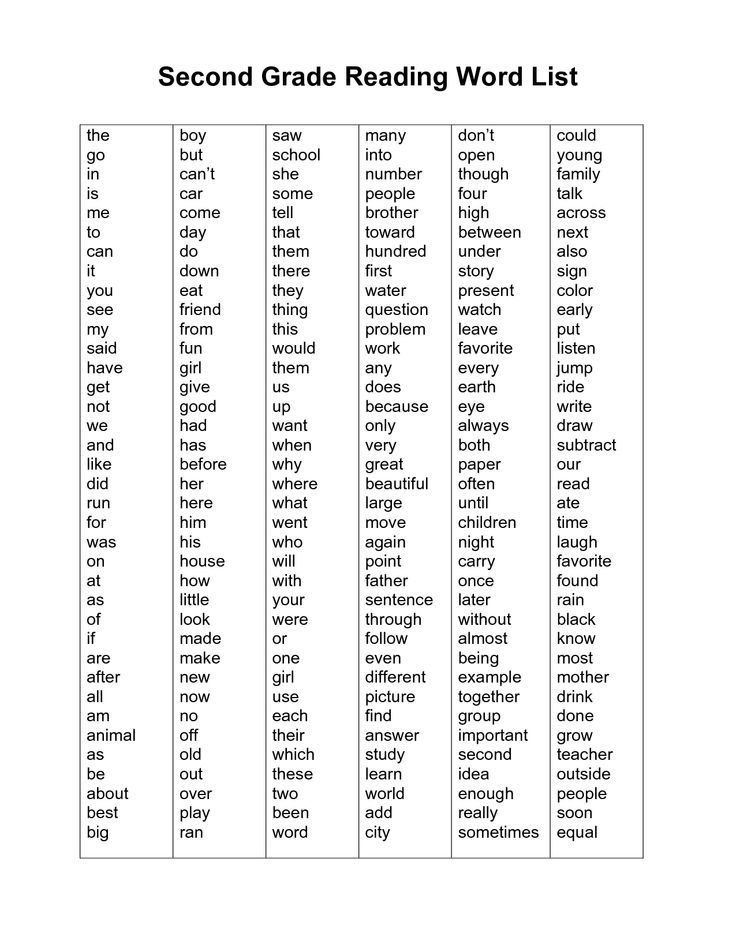
41. Typical - typical
Consonant, but different words. Do not confuse: typical - embodying the characteristic features of someone or something. Typical - this is corresponding to some sample.
42. Frustration - prostration
These concepts are often confused even by psychologists themselves. Frustration is a feeling of anxiety arising from the inability to achieve the desired. In other words, dissatisfaction. Prostration is an oppressed, apathetic state, a breakdown, when you do not want and cannot do anything.
Make no mistake 🤷♀️
- 12 borrowed words in which it is easy to make a mistake
43. Functionality is functionality
Even serious IT publications make an unfortunate mistake, calling functionality functionality and vice versa. It's not the same thing. Functionality is a set of possible use cases or possible actions performed by an object: the functionality of a smartphone or laptop. A functional is a numerical function defined on a vector space.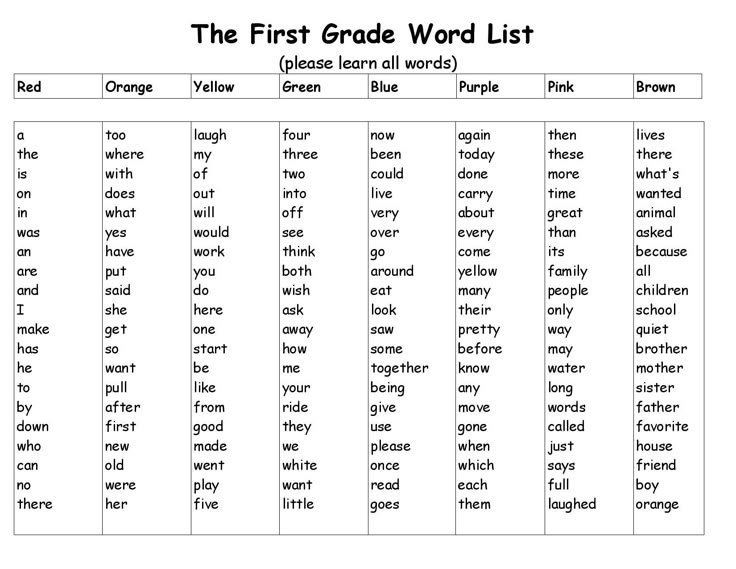
44. Empathy
This psychological term is sometimes confused and identified with sympathy. Empathy is the ability to enter into the emotional state of another person, to feel his experiences. Far from always we can take the place of another person, even if we like him.
Read also 🧐
- Pasta or pasta? 20 words you're using incorrectly in the plural
- 13 common words that came from prison jargon
- Why is there so much debate about feminists?
Introductory words in Russian - table, types and examples
We will teach you how to write without mistakes and tell stories in an interesting way
Start learning
291.2K
What is the difference between Crime and Punishment and a dry criminal report? No, not the plot, but the style of presentation. The artistic style is distinguished by the presence of optional but important words and constructions that make the text emotional and create its mood.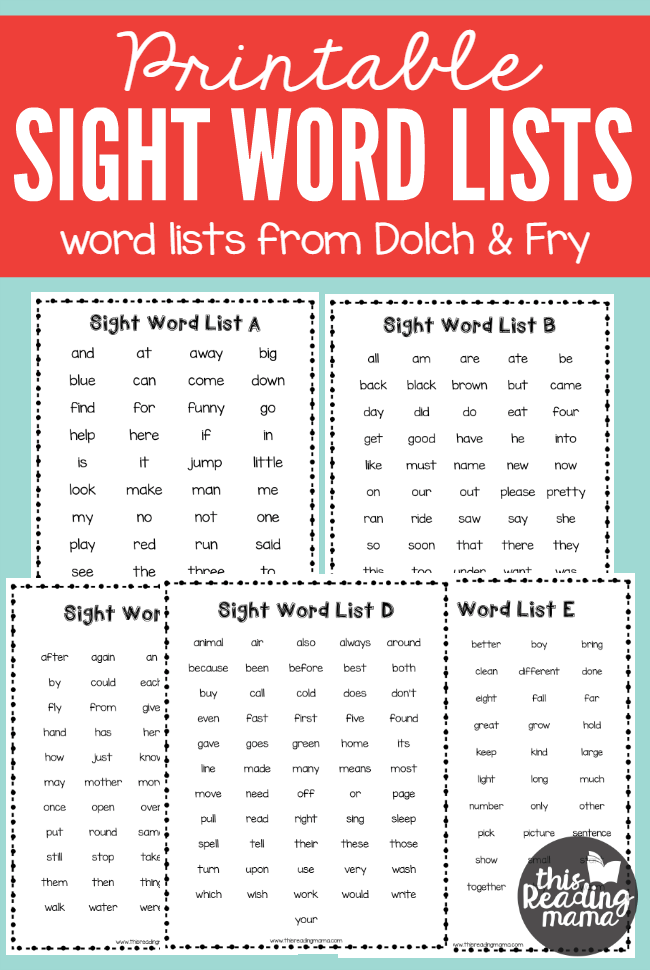 This material is devoted to introductory words - the culprits of many punctuation errors.
This material is devoted to introductory words - the culprits of many punctuation errors.
What are introductory words
Let's start, as always, with a definition - let's figure out what words are called introductory and why they are needed. Schoolchildren face them starting from the 5th grade, although they study in detail only in the 8th grade. This is not a difficult topic if you have a good visual memory - there are very few rules regarding introductory words in Russian, and you just have to remember some things.
| Introductory words are sentence units that do not carry a separate semantic load, but enhance the emotional assessment, confidence or doubt of the speaker. They can also indicate the sequence of events, attract attention, etc. |
There are several types of introductory words, but they all have the following features:
- are distinguished in the text by commas, brackets or dashes;
- do not have grammatical connections with other members of the sentence;
- can be omitted from the text without loss of meaning.

Important!
Introductory words are not part of the sentence. They should be distinguished from exactly the same words that act as circumstances, definitions or additions. The difference is that the introductory construction cannot be questioned.
Let's look at an example:
- Sasha did come, though , he was half an hour late.
- Sasha confirmed that everything written is pure true .
So, we have the word "truth", which in the first sentence acts as an introductory one, since it cannot be questioned. In the second sentence, it is also a predicate. We can pose the question: “what is written is what?”.
- I, right , now I won't get home soon.
- The whole class is correct solved this problem.
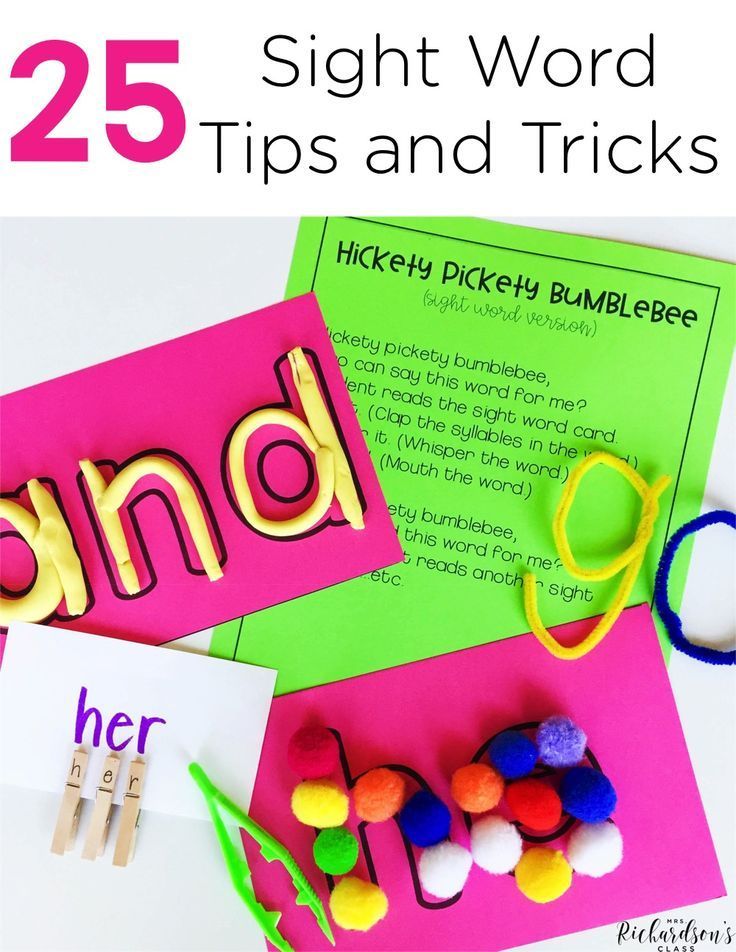
As you can see, in the second sentence you can put the question “how?” to “correctly”. Therefore, this word is not introductory.
The same rules apply to compound introductory words. They, too, can disguise themselves as different members of a sentence, and it is important to learn to recognize them.
Compare:
- He woke up every morning with joyful anticipation, in one word , he was happy. — With a single word you won't be able to convince anyone, actions are needed.
- Sea air and plenty of sun, no doubt help to quickly recover from illness. - Misha dreamed of the sky since childhood, and therefore , without any doubt, chose the flight school.
Another way to distinguish introductory words is to remove them altogether and see if the sentence loses its meaning.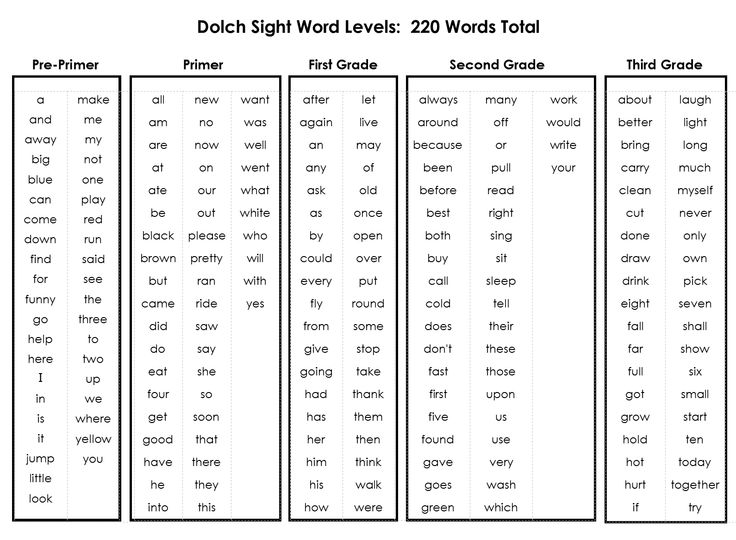 Let's try it on one of our examples:
Let's try it on one of our examples:
- Sasha did come, however, he was half an hour late.
- Sasha confirmed that everything written is true.
It is clear that in the first case the meaning remained the same, but in the second it was lost. This confirms that in the first sentence we are dealing with an introductory word.
Demo lesson in Russian
Take the test at the introductory lesson and find out what topics separate you from the "five" in Russian.
Signs of introductory words: table for grade 5
Grammatically, introductory words can be any part of speech and even a short sentence:
- noun - without a doubt, true ;
- adjective - at least, is to blame;
- verb - I hope, I suppose ;
- adverb - undoubtedly, certainly ;
- gerund - frankly speaking ;
- phrase - if you want to know, according to experts ;
- is an impersonal sentence - seemed to me, as I see it .
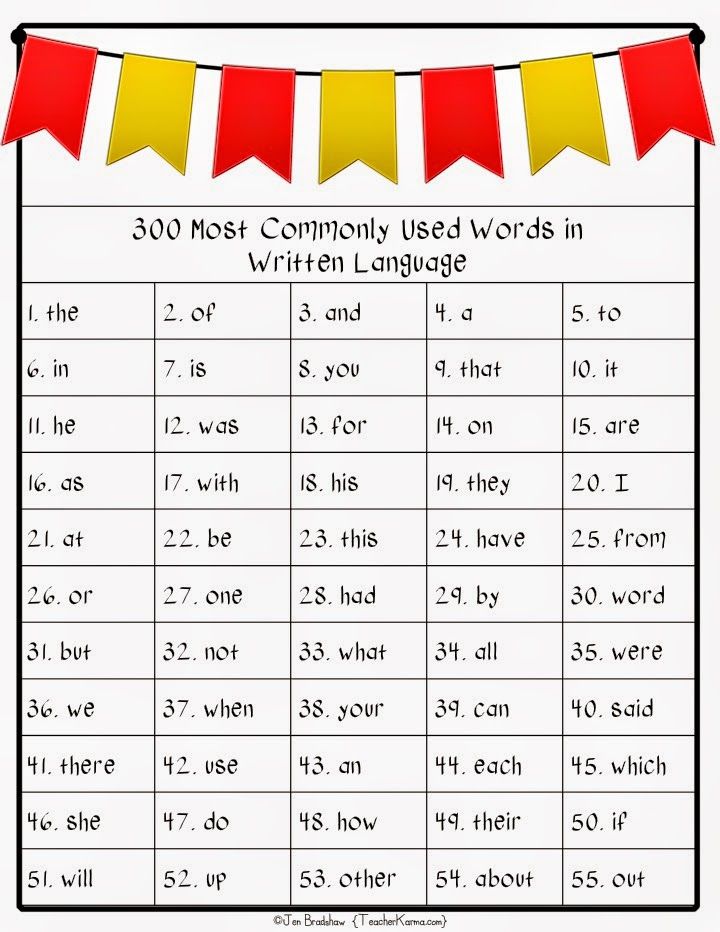
Examples of the use of introductory words:
- The Pacific Ocean, no doubt , the largest on the planet.
- Frankly , I could not convince him that I was right, and I did not try.
- This role, as I see it , Masha will play the best.
- — Will you be expected by eight in the morning?
- Of course !
Russian language exam preparation courses at the Skysmart online school - without stress and on real exam tasks. Try it for free with an introductory lesson!
Digits of introductory words by value
As we have already said, introductory words can perform a variety of functions in oral and written speech.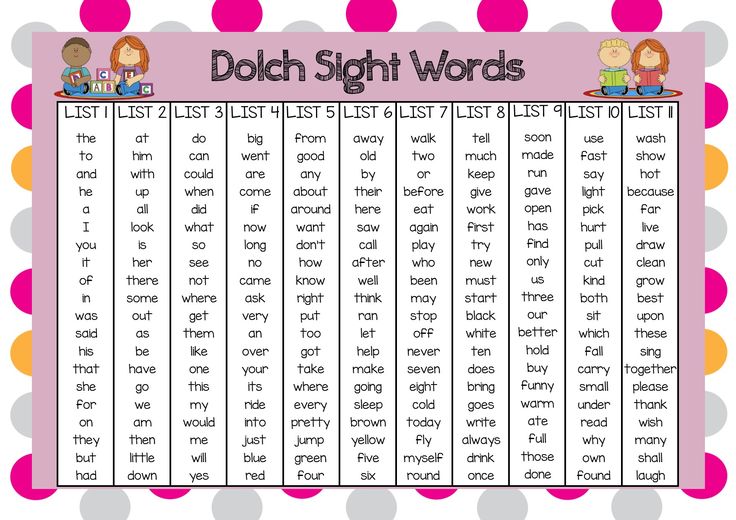 Some of them emphasize the position of the speaker - his confidence, surprise, regret, etc. Others point to the next action or event, the logic of the story or the source of information. The third ones are only needed to attract attention. Let's figure out what the introductory words of different types mean, and at the end we will summarize using a table with examples.
Some of them emphasize the position of the speaker - his confidence, surprise, regret, etc. Others point to the next action or event, the logic of the story or the source of information. The third ones are only needed to attract attention. Let's figure out what the introductory words of different types mean, and at the end we will summarize using a table with examples.
Different degrees of certainty, assumption and assumption
This is the most common category of introductory words that we refer to on a daily basis. The main function of this category is to emphasize confidence or uncertainty in any information, so it is very important.
Examples: certainly, certainly, of course, of course, suppose, probably, perhaps, maybe .
If you remove such an introductory word, the sentence will not lose its meaning, but its meaning will still become slightly different.
Compare:
- Maybe I'll call on you tonight.
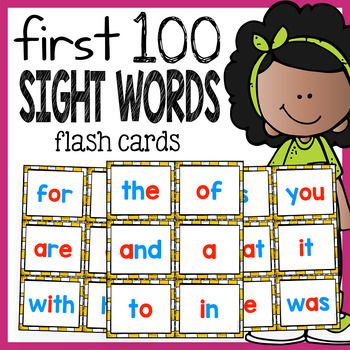
- I will visit you tonight.
In the first case, uncertainty remains, while in the second, the proposal sounds positive.
If we talk about introductory words that express confidence, this difference is less noticeable. With them, the statement becomes more categorical, but does not acquire other shades of meaning.
- The task will be difficult, but you, of course , can do it!
- Certainly is the shortest road to the city center.
- This deal, no doubt , launched his successful career.
Do not confuse with members of the sentence:
I believed his words (how?) definitely and without the slightest doubt.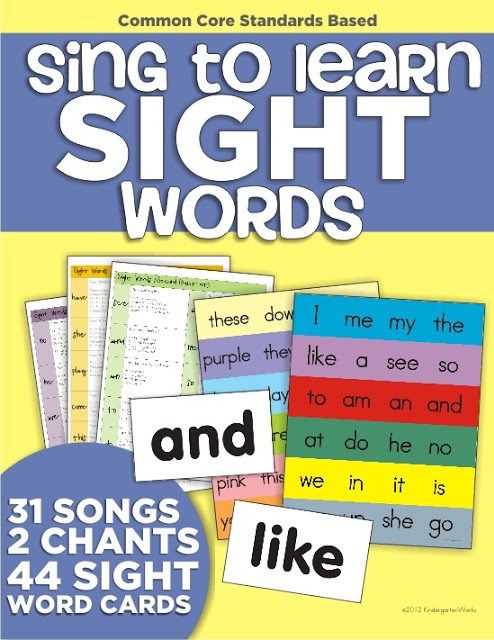
Next, we will consider how the introductory words are indicated, but for now we remind you: if you can put a question to the word, it is a member of the sentence and is not separated by commas.
Emotions, feelings and assessment of what is happening
Using this category of introductory words, the speaker expresses his attitude to events, gives an assessment. Such words can denote joy, delight, grief, horror, a sense of shame, fear, etc.
Examples: to everyone's joy, to horror, to my delight, unfortunately, unfortunately, the hour is uneven, that's it.
They are characteristic of direct speech, as they reflect the emotions and feelings of the speaker.
- Sorry, , I won't be able to personally meet you at the station.
- Time, surprisingly , flew by very quickly - I did not have time to get bored.
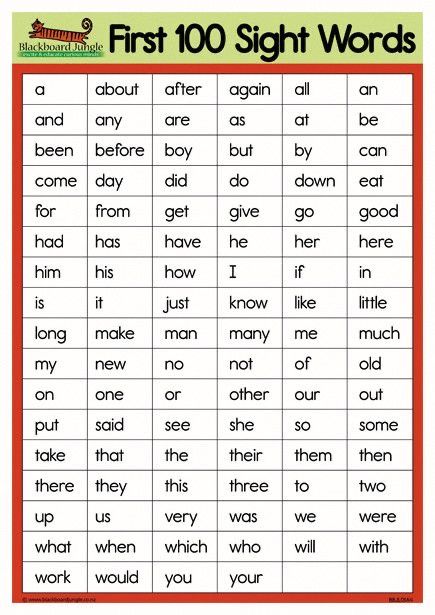
In fiction, these same introductory words can also be used to tell about the feelings of the hero or his attitude to events.
- Katya, to her shame , did not know the meaning of this word and did not understand what it was about.
- The artist went for an encore and, to the delight of the audience , performed all the hits.
Do not confuse with members of the sentence:
(What for?) The delight of the audience was mixed with a share of disappointment that the favorite hit was never heard.
Ordinary, ordinariness of what is happening
Quite a small category of introductory words, in which the majority are colloquial expressions. They not only allow you to point out the ordinary nature of events, but also enliven the text, give it color.
Examples: happened, as usual, happened, as a rule, as usual, as usual, as always .
- Grandfather Semyon opened the gate and, according to the old custom , leaned towards the shaggy Beetle.
- After a walk in the park, we, as usual , went for a cup of tea in a cafe.
Do not confuse with members of the proposal:
Not accepting the church reform, the community continued to live (how?) old custom .
Introductory words indicating the source of the message
The main task of introductory words of this type is to indicate authorship, refer to the source of information or give the statement some authority. They are typical for news reports, reviews, articles in the media and are part of the journalistic style, although they are used not only within its framework.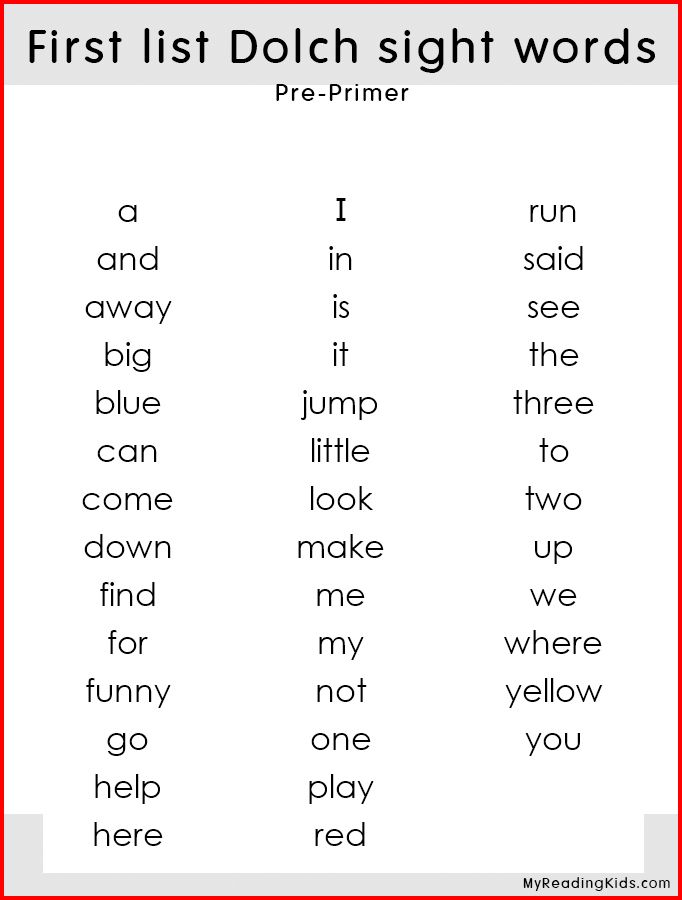
Examples: according to experts, according to scientists, according to the prime minister, according to a correspondent, in my opinion .
- About 97% of all water on our planet, according to scientists , is contained in the oceans.
- According to Deputy Prime Minister , economic growth will continue next year.
In addition, such introductory words help convey direct speech without resorting to exact quotation.
- Ivan Ivanovich said: "Our plant overfulfilled the plan by 5% last quarter."
- According to Ivan Ivanovich , the plant overfulfilled the plan in the last quarter by 5%.
Do not confuse with members of the proposal:
Do not draw far-reaching conclusions (for what?) according to experts , the situation may still change.
Connection of thoughts and sequence of presentation
This type of introductory words indicates the internal logic of the sentence, sequence or any other connection between events. It is especially often used in textbooks and scientific materials, since it makes it possible to streamline the text, build a causal chain.
Examples: therefore, firstly, secondly, accordingly, therefore, on the one hand, first of all, in addition, finally .
- These triangles have a common hypotenuse, hence , they are equal.
- On the one hand, Dasha liked living in France, but on the other hand, she still missed home.
Do not confuse with members of the sentence:
The sheet of paper was painted only (where?) on one side and the other side remained blank.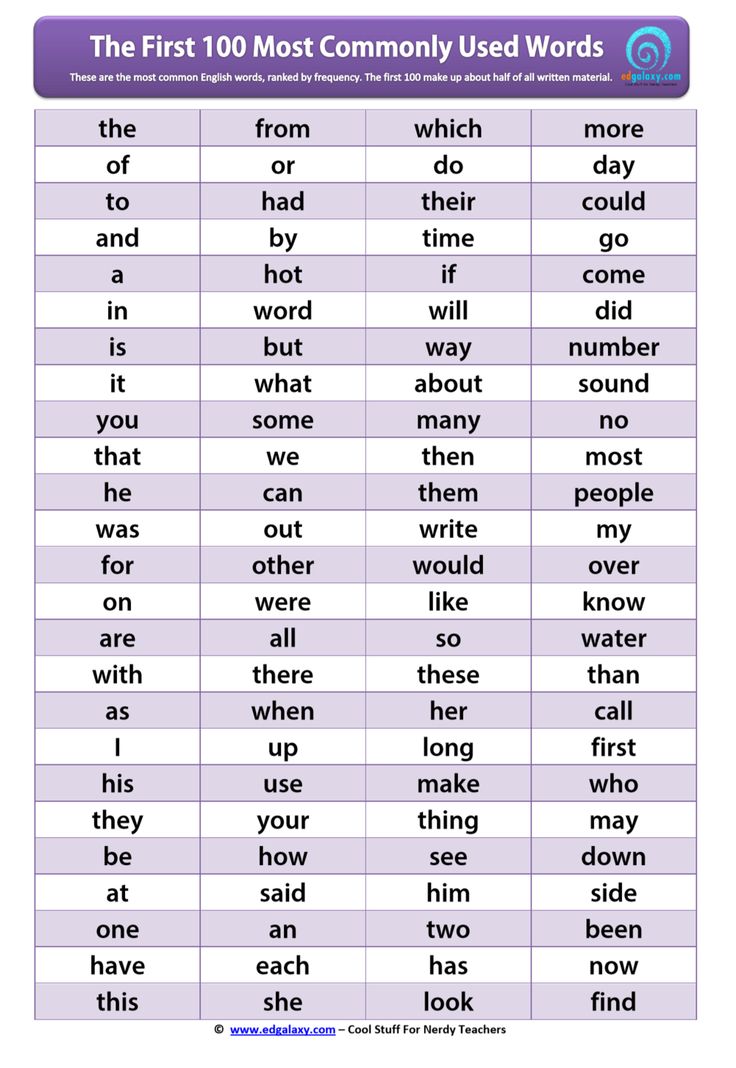
Notes on the style of speech, way of expressing thought
Introductory words from this category are usually used to indicate the features of the presentation or to reformulate the thought. Like the previous view, sometimes they can precede a certain conclusion, but do not directly indicate the connection of events, but rather help express the same idea through other facts or in a different style.
Examples: in other words, to put it mildly, to put it more precisely, if I may say so, in short, in a word.
- The children started to get bored and look at their phones, in other words , the film was not very interesting.
- This, if I may say , is not jasper at all - the stone heats up too quickly in the hands.
Do not confuse with members of the sentence:
(What?) In other words, can be wounded no worse than with a dagger.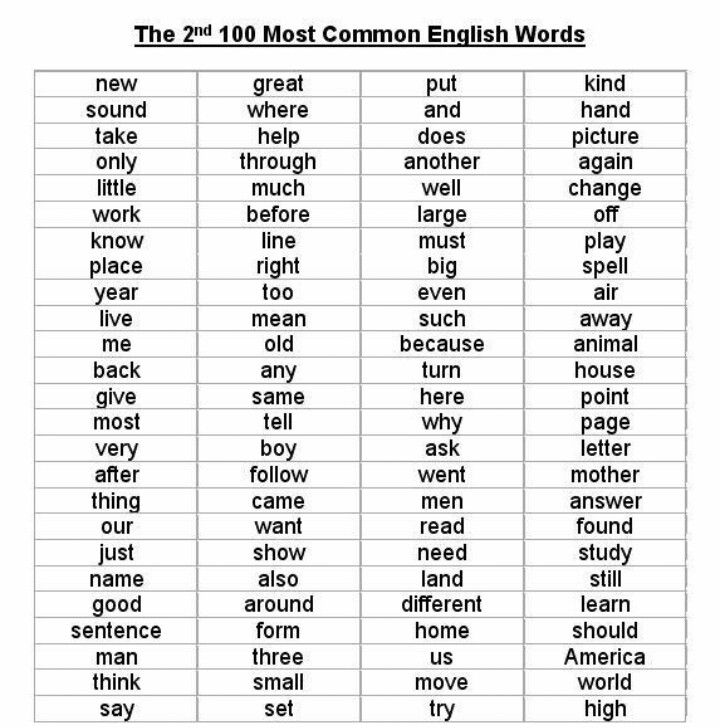
Introductory words that attract the interlocutor's attention
Marker words with which you can draw the listener's attention to one or another part of the statement, emphasize the main idea. Very often they are at the beginning of a sentence, but they can also occur in the middle, but at the end they are extremely rare.
Examples: listen, imagine, emphasize, believe it, see, notice what is essential, what is even more important .
- Note , no one left the classroom, although the teacher was already half an hour late.
- At this meeting we were able to sum up the results and, which is significant , outline a plan for the next year.
Do not confuse with the members of the offer:
Marina always collected her briefcase in the evening, which (how?) significantly saved her time in the morning.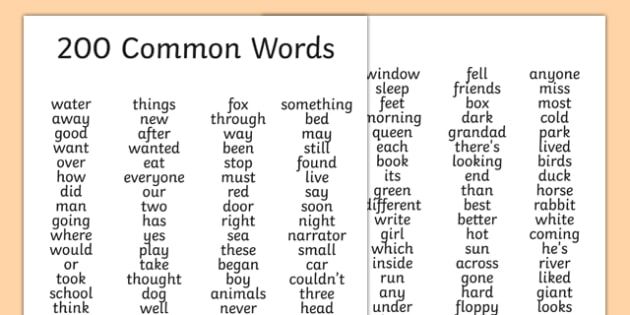
Of course, it is almost impossible to list all the introductory words that are, but we have compiled a short cheat sheet - a table with examples of sentences.
| Value | Introductory words | Examples |
| Degree of certainty, assumptions, assumptions | Undoubtedly, unequivocally, it may turn out, of course, of course, perhaps, for example, perhaps, etc. | Possibly , our department will join this project next month. Katya, of course , the best student in the class. |
| Emotions, feelings and assessment of what is happening | Fortunately, to my surprise, to my shame, unfortunately, the hour is uneven, to joy, unfortunately, God forbid, thank the gods, etc.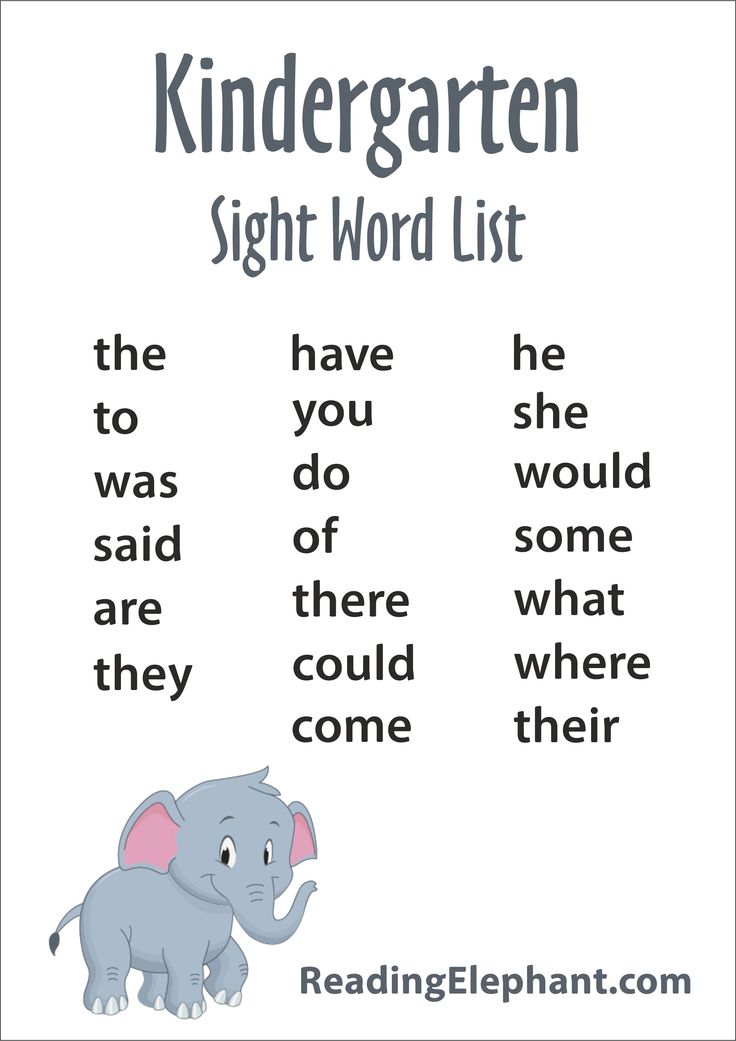 | The weather has deteriorated and, the hour is uneven , it will also rain in our city. Masha quickly found an error in the problem and, fortunately , managed to correct it. |
| Information source designation | According to scientists, according to the press, they say, according to experts, in my opinion, in your opinion, etc. | This summer, say , there will be many berries in the forest. According to scientists , green tea has a positive effect on the nervous system. |
| Indication of the sequence of events or thoughts | Firstly, therefore, therefore, on the contrary, finally, in particular, in the first place, thus, etc.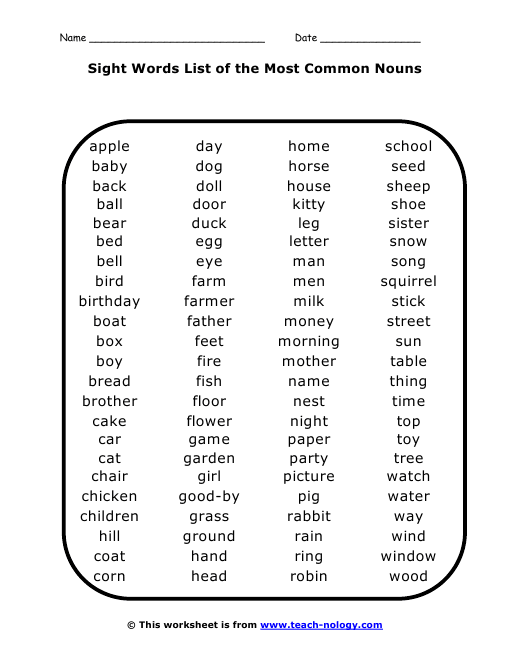 | Katya dreamed of a trip, and Dasha, opposite , would like to stay at home. Winter will be harsh, therefore , you need to think about warming the house. |
| Drawing attention to all or part of a proposal | Do you understand, do you know, look, listen, confess, if you want to know, do me a favor, etc. | Look if he did it, then he had a good reason. We waited for him all evening, and he, you see , simply forgot about the meeting. |
| Indication of the commonness of an event or subject of conversation | It happened, usually, it happened, as always, as a rule, as usual, etc. | I came to work, as usual , at eight in the morning. Sometimes , Ivan was late for the last bus and walked. |
| Remarks on the style and nature of speech, the way of expressing thoughts | To put it mildly, to put it bluntly, in a word, to put it bluntly, in other words, to say more precisely what is called, etc. | Your act, to put it mildly , looks tactless and offends those around you. We live in a village near Tula, or rather , in the suburbs. |
Punctuation marks for introductory words
All introductory words in Russian are distinguished by punctuation marks, which is clearly seen in the examples from our table. In this they differ from the same words that act as members of a sentence and answer a certain question. In addition to the question, there is another way to understand whether it is necessary to put commas or other punctuation marks - try to move the word (phrase) to another part of the sentence.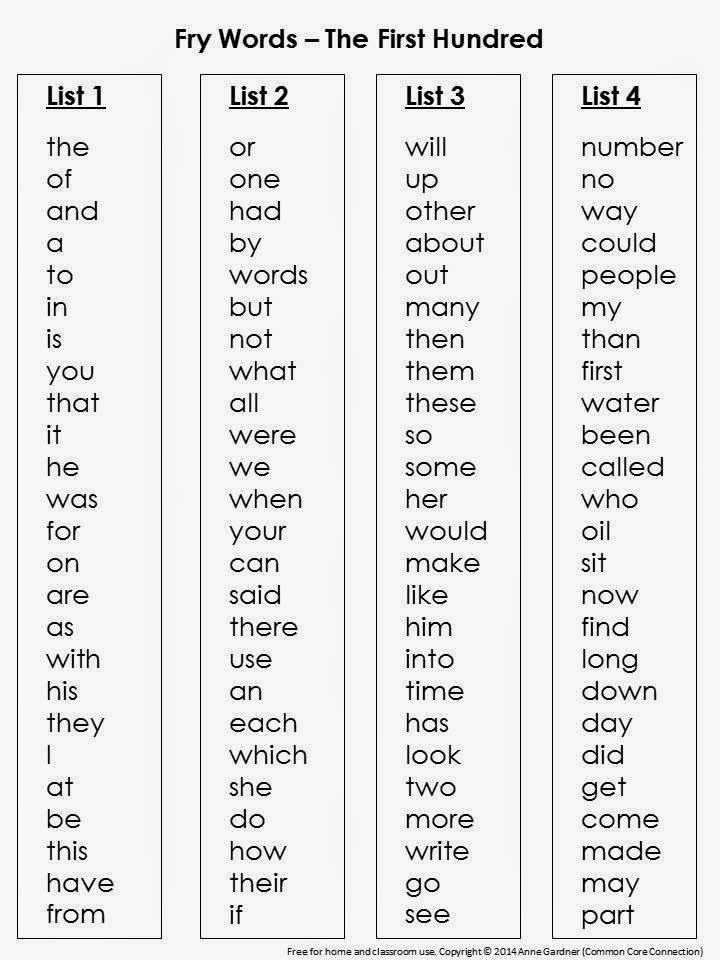
- As a rule Ivan eats oatmeal for breakfast.
- Ivan, usually , eats oatmeal for breakfast.
- Ivan eats oatmeal for breakfast, as a rule .
The meaning of the statement has not changed, the construction looks good in any part of the sentence. This means that these are introductory words and they are separated by commas.
Surprisingly, as a rule can be so confusing and difficult to understand.
In this case, the phrase "usually" has a strong syntactic relationship with other words in the sentence, it cannot be moved without losing its meaning. So it is not introductory. We can check this assumption by analyzing it by composition, and we will find out that the "rule" here is the subject.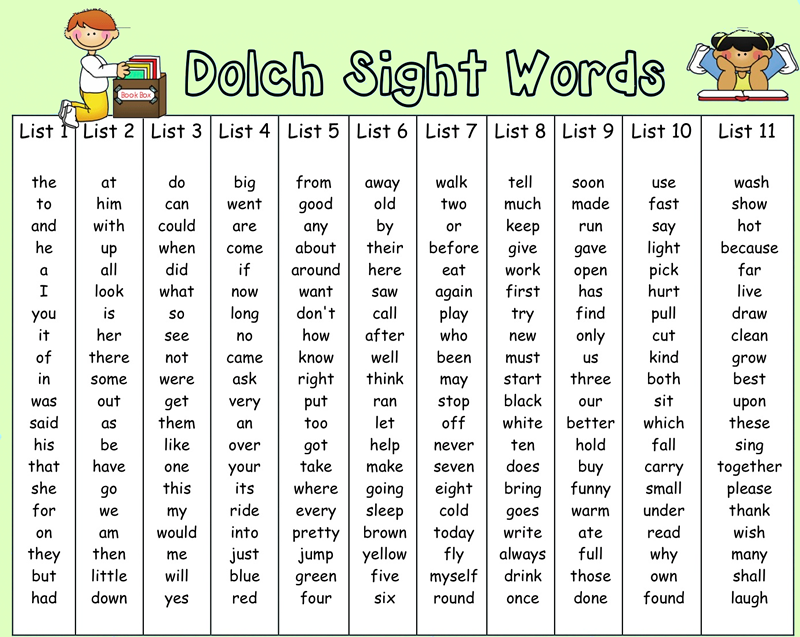
Important!
If in a compound sentence with the union “and” both parts of it are preceded by one inserted word, it is not required to put a comma between these parts.
- Apparently , the lesson has not started yet and the children were still making noise outside the door.
- Luckily , the rain had already stopped and I didn't get wet at all on the way home.
- Yesterday I saw this document, hence , it was lying on the table and Nikolai could not pick it up.
How else is the introductory word distinguished in a sentence, apart from commas? Sometimes you can put a dash in front of it, but this refers more to the author's punctuation, which is needed to create a special rhythm of the text or convey intonation.
- I realized that I had forgotten my passport and I was very scared - the hour is uneven , I will have to turn back.
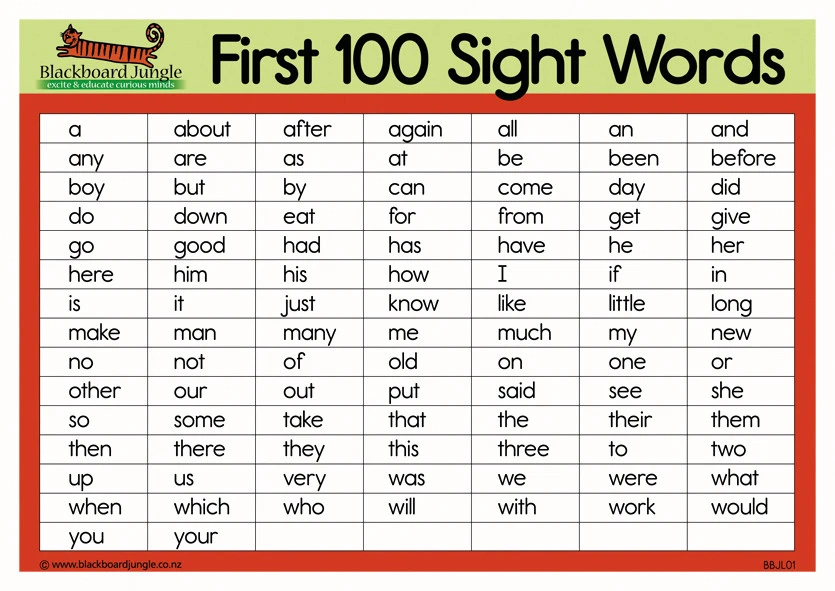
- Sergey was annoyed - you see , he expected to get a promotion this month.
Introductory words and insertive constructions
| Insertive constructions and insertive sentences differ from introductory words in that they are an autonomous part of a sentence and contain a complete thought. They can act as incidental remarks, indications, author's explanations in relation to the main sentence, and sometimes even have a weak syntactic connection with it. |
To make it clearer how introductory words and plug-in constructions differ, we have compiled a small table.
| Introductory words | Plug-in designs |
July, say , will be warm and sunny.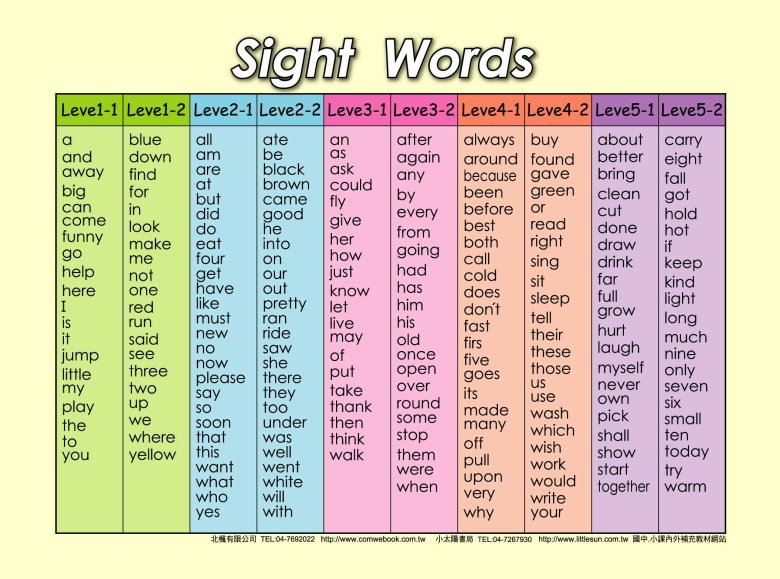 | July, I think will be warm and sunny. |
| Aleksey, of course , already knew how to properly saddle a horse. | Aleksey, we were confident in this , he already knew how to properly saddle a horse. |
| The ring lay in a conspicuous place and, certainly , attracted attention. | The ring lay in a conspicuous place, and - as the reader has already guessed - attracted attention. |
It is easy to see that insert constructions, unlike introductory words, have their own subject and predicate. Very often they can be issued as a separate offer.
Short insertions may be separated by commas, while longer ones are often separated by parentheses or dashes.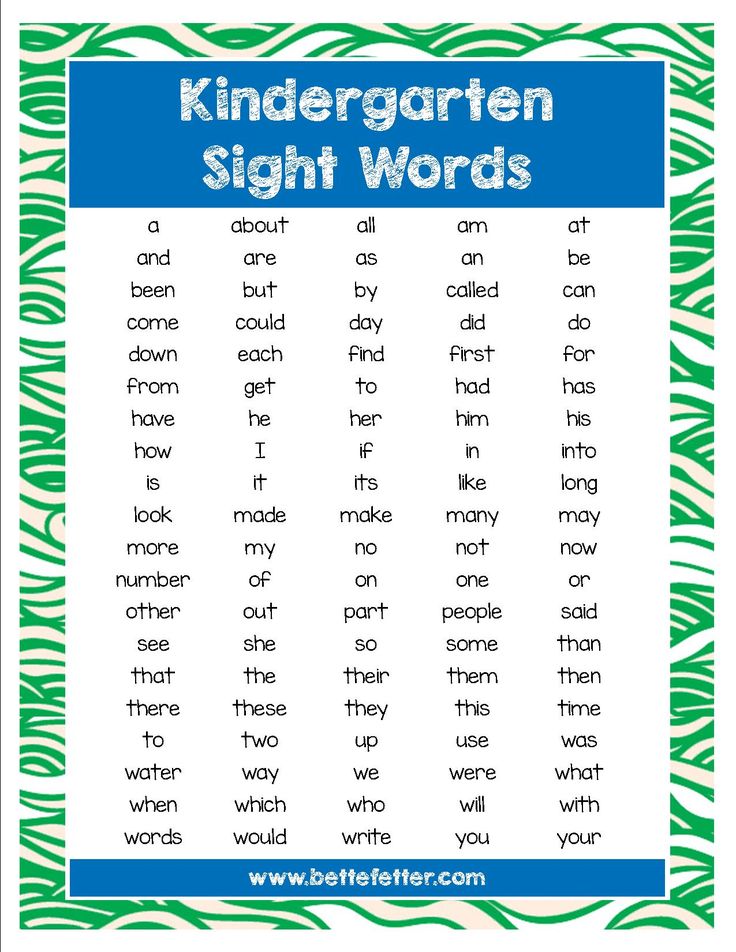 However, it depends not so much on the length of the structure, but on the author's intention. Putting a dash or bracket instead of a comma in most cases will not be a mistake.
However, it depends not so much on the length of the structure, but on the author's intention. Putting a dash or bracket instead of a comma in most cases will not be a mistake.
- Several guys - there were about a dozen of them - turned off the path to eat raspberries.
- An old tram rumbled along the street ( such trams have long been discontinued ) and slowly disappeared around the corner.
- Once — Kolya and Vitya remembered this day for a long time — dad took the whole family fishing in the neighboring region.
Usually, when choosing between commas, brackets and dashes, they are guided by the following: if an interstitial construction has little or no syntactic links with the sentence, it is better to enclose it in brackets.
Sometimes an interstitial sentence ends with an exclamation mark or a question mark to enhance expression.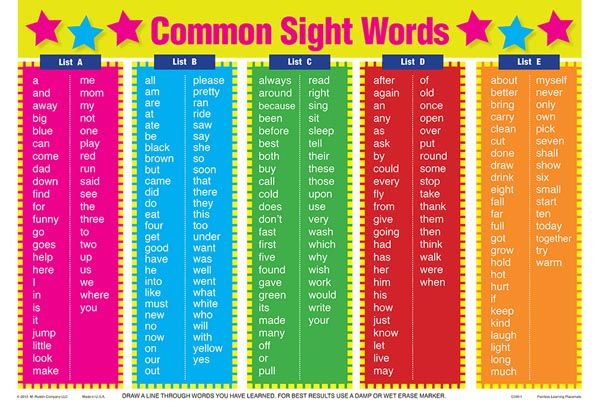 In this case, it can be distinguished exclusively by brackets or a dash.
In this case, it can be distinguished exclusively by brackets or a dash.
Last spring - it was a real miracle! - the old apple tree is suddenly covered with flowers again.
Important!
If an insertion ends with an exclamation mark or a question mark, then the sentence must be continued with a lowercase letter.
Interestingly, introductory words can sometimes be distinguished in the same way. As a rule, this is found in fiction and is one of the ways to emphasize emotions, express the feelings of the author or character.
- Katya carefully entered the dark room and — oh, horror! - noticed how the curtain swayed slightly by itself.
- And soon ( wonderful thing! ) Petya fell in love with mathematics so much that he solved all the problems for the next quarter.
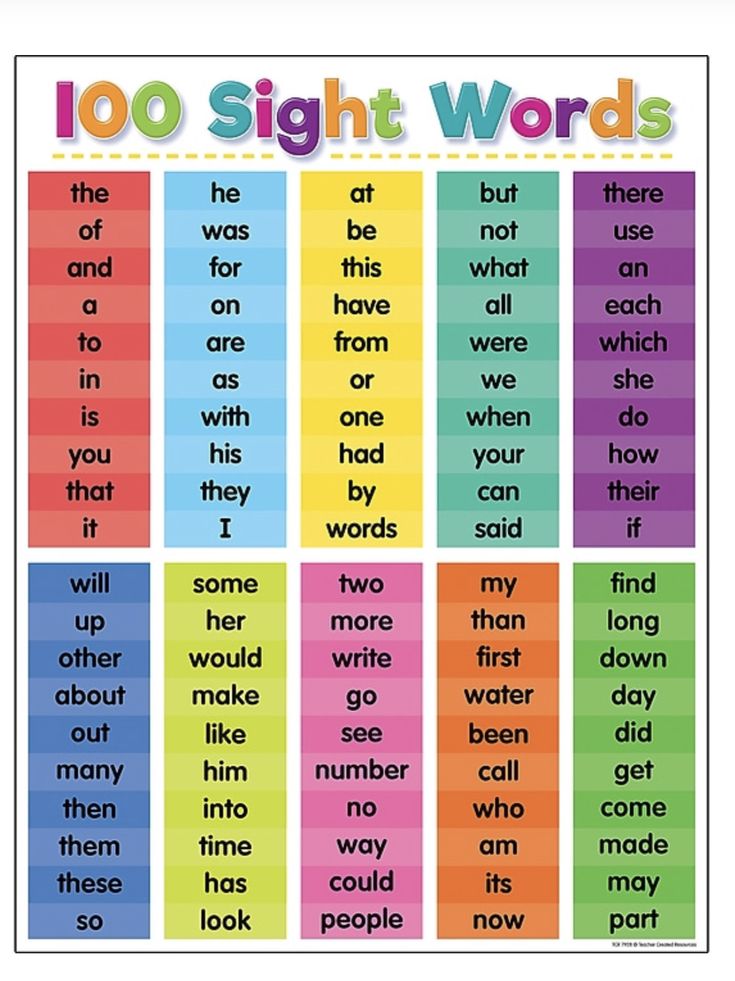
Learn more

